Raja 30 Classic Thread
Raja 30 Classic Thread
Couldn't load pickup availability
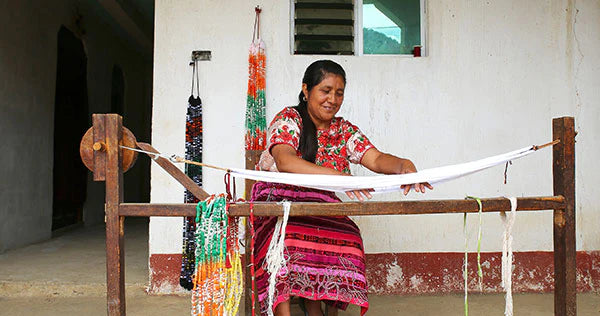
Unterstütze mit einem Trinkgeld KunsthandwerkerInnen wie Agripina.
Schön, dich kennenzulernen, ich bin Agripina! Wir stellen mit Ethnotek Textilien in einem Verfahren her, das "Jaspe" genannt wird. Das rohe Kettgarn wird in Abschnitten geknüpft und gefärbt und dann auf Spulen aufgespult, die den Tretwebstuhl speisen, um die Stoffe zu weben.
Ich arbeite bei mir zu Hause in Paxtoca, Guatemala, mit meinem Mann Santos, unseren Söhnen und deren Freunden.
Dein Trinkgeld wird jeden Monat unter unserer Gemeinschaft aufgeteilt, und zwar im Verhältnis zu der Menge, die jede Person gewebt hat. Muchas gracias!
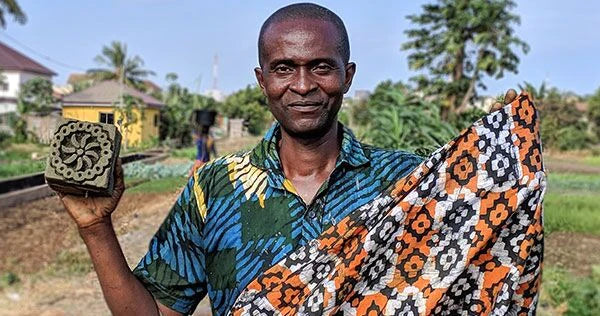
Unterstütze mit einem Trinkgeld KunsthandwerkerInnen wie Charles Acquah.
Hallo, ich bin Charles Acquah, ich stamme aus dem Dorf Somanya und habe eine Werkstatt in Accra, wo ich zusammen mit meinem Sohn Nathaniel die Batikstoffe aus Ghana für Ethnotek herstelle. Unsere Motive sind von traditionellen Adinkra-Symbolen inspiriert.
Dein Trinkgeld kommt direkt mir und meiner Familie zugute. Danke, dass du unser Handwerk unterstützt!
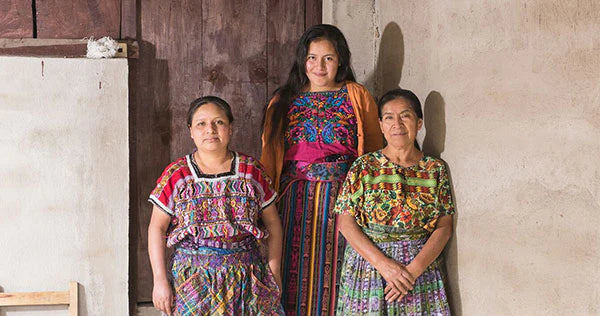
Unterstütze mit einem Trinkgeld KunsthandwerkerInnen wie Lidia, Blanca and Alida.
Hola, wir sind Lidia, Blanca und Alida, die Schöpferinnen des besonderen Mayan-Star. Unsere Weberei befindet sich in Comalapa, Guatemala. Wir stellen maximal 20 Meter Stoff pro Monat her, weil dieses mehrfarbige Motiv so kompliziert und zeitaufwändig ist. Wir freuen uns über die große Beliebtheit des Mayan Star! Die Nachfrage durch Ethnotek hilft uns, das Motiv konstant zu weben und unseren jüngeren Webern beizubringen.
Dein Trinkgeld wird jeden Monat unter unserer Gemeinschaft aufgeteilt, und zwar im Verhältnis zu der Menge, die jede Person gewebt hat. Wir danken dir ganz herzlich für deine Unterstützung!
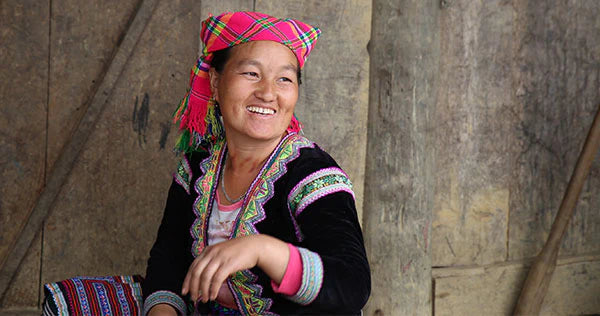
Unterstütze mit einem Trinkgeld KunsthandwerkerInnen wie Che.
Hallo, ich bin Che und gehöre zu einer Gruppe von 96 Kunsthandwerkerinnen im nördlichen Hochland von Vietnam, die in Zusammenarbeit mit Ethnotek handbestickte Textilien herstellen.Wir Hmong-Frauen stellen nur 2 Stammesröcke pro Jahr her. Das kunstvolle Sticken ist unser liebstes Hobby, das wir in den Pausen von unserer landwirtschaftlichen Arbeit ausüben. Dieses Kunsthandwerk ist unser Erbe, das wir mit Stolz bewahren und es macht uns Spaß, weil wir uns dabei oft treffen und miteinander lachen und scherzen.
Dein Trinkgeld wird jeden Monat unter unserer von Frauen geführten Kooperative aufgeteilt, und zwar im Verhältnis zu der Anzahl der Stammesröcke, die jede Frau produziert. Danke, dass du unser Handwerk unterstützt und unsere Geschichte teilst.
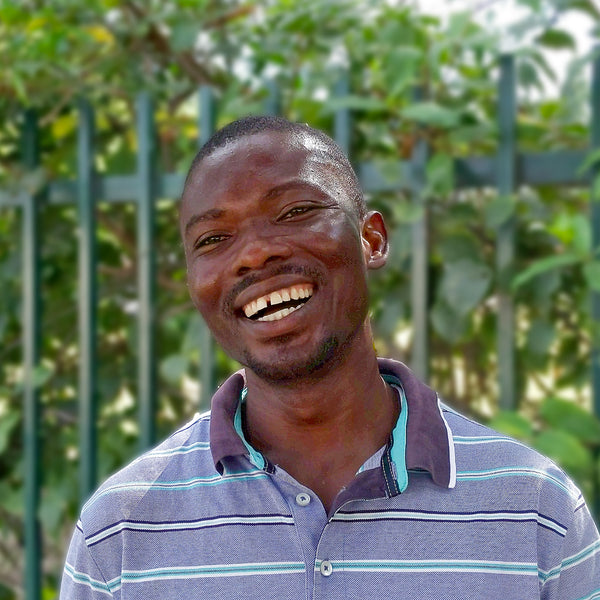
Unterstütze mit einem Trinkgeld KunsthandwerkerInnen wie George Ameyaw.
Die Kente-Weberei befindet sich seit 5 Generationen in der Familie von George Ameyaw und seinem Team. Die begabten Meisterweber um George sind: Felix Boakye, James Atagbolo und Willliam Agbo. Ihre Werkstatt befindet sich in Accra, Ghana, und ihre Technik hat traditionelle Wurzeln, die bis ins 17. Jahrhundert zurückreichen und von den Stämmen der Ashanti, Akan und Ewe stammen.
Dein Trinkgeld wird zu gleichen Teilen unter meinem kleinen Team aufgeteilt. Danke, dass du unser Handwerk unterstützt!
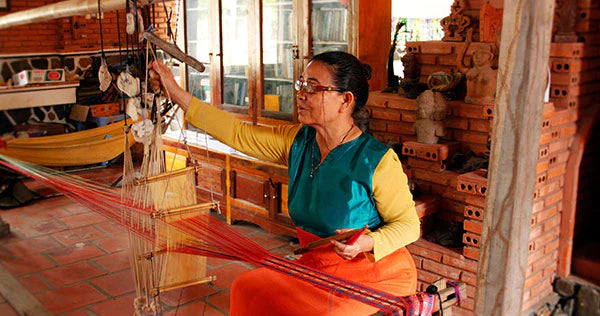
Unterstütze mit einem Trinkgeld KunsthandwerkerInnen wie Inrahani.
Hallo, ich bin Inrahani, und mein gewebter Stoff ist in vielen Taschen verarbeitet. Unsere Textilien werden auf einem Bambusrahmenwebstuhl im Dorf Phan Rang Tap Chap in Zentralvietnam hergestellt. Wir sind stolze Nachfahren des Champa-Königreichs und bedanken uns für deine Unterstützung.
Dein Trinkgeld wird jeden Monat unter unserer Gemeinschaft aufgeteilt, und zwar im Verhältnis zu der Menge, die jede Person gewebt hat. Wir sind dankbar, mit deiner Hilfe unser Handwerk weiterentwickeln zu können.
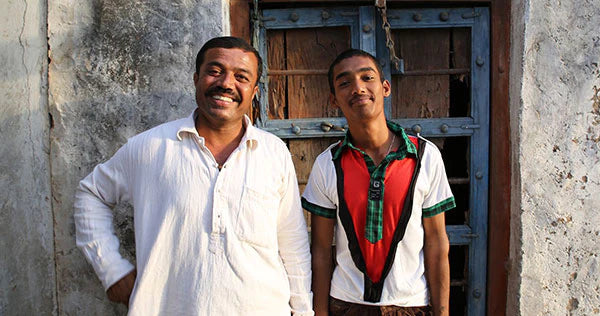
Unterstütze mit einem Trinkgeld KunsthandwerkerInnen wie Shamji.
Hallo, ich bin Shamji und der erste Kunsthandwerker mit dem Ethnotek seit 2010 zusammenarbeitet. Wir weben als Gemeinschaft mit einem selbstgebauten Grubenwebstuhl. Die Motive sind mehrere Generationen alt. Meine Familie und ich sind Gemeindevorsteher des Vankar-Volkes. Das Weben von Textilien ist unsere wichtigste Identität und meine Aufgabe ist es, die nächste Generation von Kunsthandwerkern zu unterrichten, damit wir unsere Tradition durch sie bewahren können. Besucht uns eines Tages in Bhujodi, Indien, wir freuen uns darauf Euch kennenzulernen!
Wir sind dankbar für deine Unterstützung und freuen uns, dass unsere Stoffe auf Taschen und bei Reisenden in aller Welt zu sehen sind.
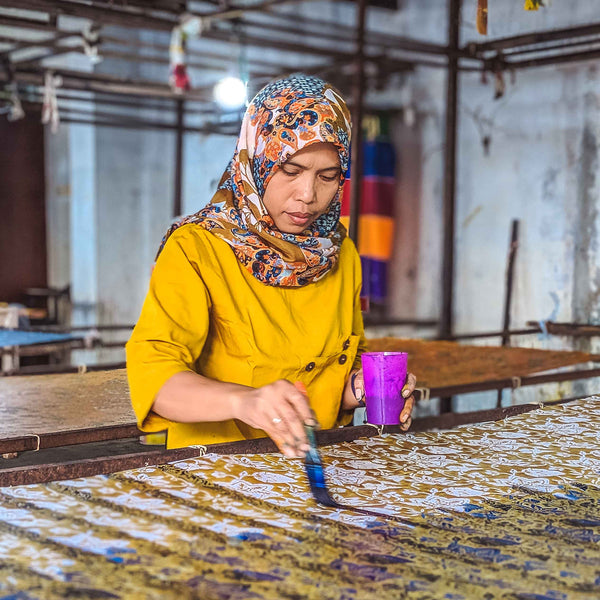
Unterstütze mit einem Trinkgeld KunsthandwerkerInnen wie Sri and Yatmi.
Monggo (Was geht!), wir sind Sri und Yatmi und wir stellen gemeinsam mit Iwan die Batikstoffe aus Indonesien her. Iwan ist Batikmeister in der fünften Generation und setzt die Tradition seiner Familie fort. Wir haben ein spezielles Verfahren mit geringem Wasserverbrauch, bei dem die Farbe von Hand auf die Stoffe gemalt wird, nachdem unser Freund Harjono sie mit Wachs gestempelt hat.
Dein Trinkgeld wird zu gleichen Teilen unter allen Mitgliedern unseres Workshops aufgeteilt. Vielen Dank für Deine Unterstützung!
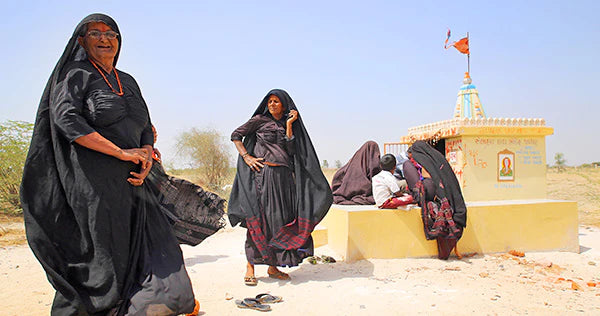
Unterstütze mit einem Trinkgeld KunsthandwerkerInnen wie The Rabari.
Hallo, wir sind der Stamm der Rabari, eine Hirtengemeinschaft, die in Gujarat, Indien, nahe der Grenze zu Pakistan lebt. Unser Textilverfahren heißt Appliqué-Stickerei und ist unsere wichtigste Form des künstlerischen Ausdrucks. Unsere ausgewählten Projektleiter sind Pankaj und Mina. Sie sammeln Euer Trinkgeld und bezahlen uns, wenn wir jeden Monat Textilien in ihrem Büro abliefern. Wir müssen das so machen, weil wir eine nomadische Gemeinschaft sind und immer in Bewegung bleiben. Wir reisen dorthin, wo unsere Ziegen, Schafe und Kühe uns hinführen. Vielen Dank für Eure Unterstützung!
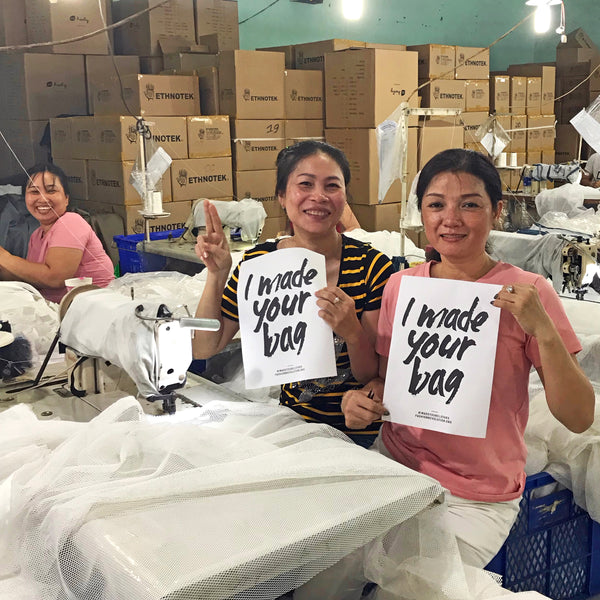
Unterstütze mit einem Trinkgeld KunsthandwerkerInnen wie The Vietnam Production Family.
Xin chao (hallo), wir sind die Magic-Maker in Vietnam, die deine Taschen und Rucksäcke herstellen! Wir sind ein Team von etwas mehr als 40 Mitarbeitern, unsere Werkstatt befindet sich in Ho-Chi-Minh-Stadt und wir sind stolz darauf, seit 2010 Ethnotek-Taschen in Handarbeit herzustellen.
Eure Bestellungen haben uns im Laufe der Jahre sehr geholfen, und mit eurem Trinkgeld wird es für uns jetzt noch etwas komfortabler. Das Trinkgeld wird zu gleichen Teilen unter unserem Team aufgeteilt, vielen Dank!
Kunsthandwerk von:
Kunsthandwerk von:
Unterstütze mit einem Trinkgeld KunsthandwerkerInnen wie
Wie funktioniert das mit dem globalen Trinkgeld?
KunsthandwerkerInnen wie stellen die traditionellen Textilien für Ethnotek in Handarbeit her. Mit tip me kannst du etwas zurückgeben. 100% deines Trinkgeldes kommen KunsthandwerkerInnen wie Charles Acquah zugute. Ja, wirklich, 100%! Ethnotek übernimmt alle Transaktionsgebühren.
stellen die traditionellen Textilien für Ethnotek in Handarbeit her. Mit tip me kannst du etwas zurückgeben. 100% deines Trinkgeldes kommen KunsthandwerkerInnen wie Charles Acquah zugute. Ja, wirklich, 100%! Ethnotek übernimmt alle Transaktionsgebühren.
Bitte beachte, dass dein Trinkgeld als Geschenk deklariert wird und daher im Falle einer Rückgabe nicht zurückerstattet werden kann.
Welche Rolle spielt tip me dabei?
tip me ermöglicht das globale Trinkgeld und registriert dafür alle KunsthandwerkerInnen in der Datenbank. Durch den direkten Kontakt zu den ArbeiterInnen, stellen sie sicher, dass 100% deiner Unterstützung beim Team vor Ort ankommt.
Bislang hat tip me mehr als 80.000 Dollar an Trinkgeldern für 1.000 ArbeiterInnen in Ländern wie Vietnam, Pakistan, Kenia, der Ukraine und der Türkei gesammelt.
Ethnotek ist das erste Unternehmen für Rucksäcke und Taschen auf der Welt, das tip me Trinkgelder ermöglicht. Danke, dass du ein Teil davon bist!
Deine Vorteile
Deine Vorteile
Keeping culture alive! With the interchangeable patterns ("Thread") you become part of the culture of traditional textile manufacturing. Each pattern carries its own story and represents a tradition or meaning. Jake Orak, the founder of Ethnotek, meets the families and artisans personally and buys whole fabrics directly without middlemen (Direct Trade). This is how we support communities in five regions around the world and regularly bring new designs and artisans to the line.
Funktionen
Funktionen
- Wird per Schnellverschluss Schnallen und Klettverschluss am Raja 30 Tages Rucksack oder Raja Lite Ecopack angebracht
- Tasche für Tablet, Notizbuch oder Kabel
- 210 Denier starkes Nylon an der Innenseite
- Landesflaggen Label & ETHNOTEK Logo
- 840 Denier starke, ballistische Nylon Bindung (nur Ballistic Black Thread)
- Reflektoren an 4 Ecken für bessere Sichtbarkeit bei schwachem Licht (nur Ballistic Black Thread)
Größe und Gewicht
Größe und Gewicht
Volumen: -
Gewicht: 180 g
Größe: 61 x 24,5 x 0,5 cm
Größe Laptopfach: Tablet bis 11”
Material: 60% Nylon, 40% Baumwolle
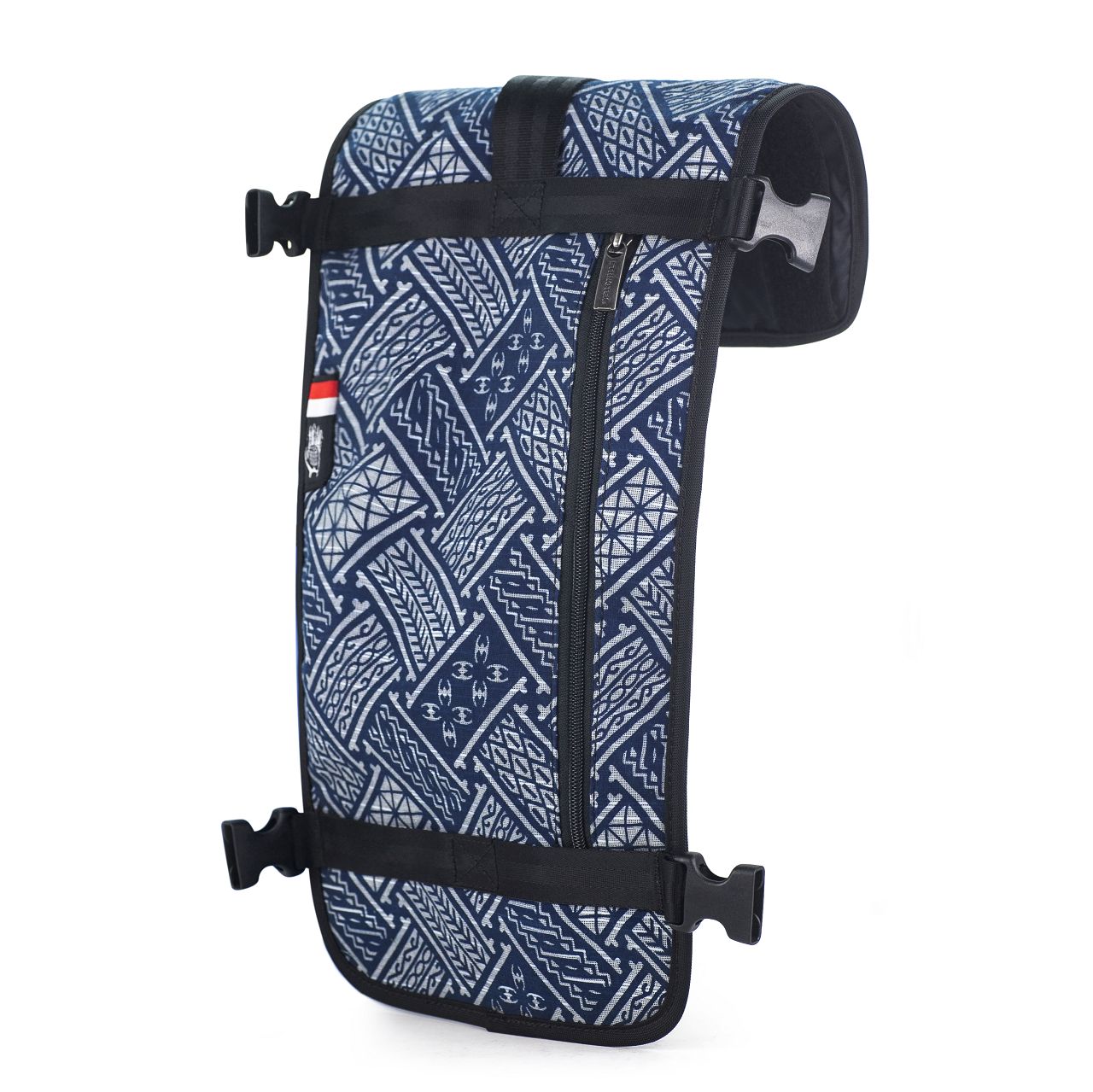

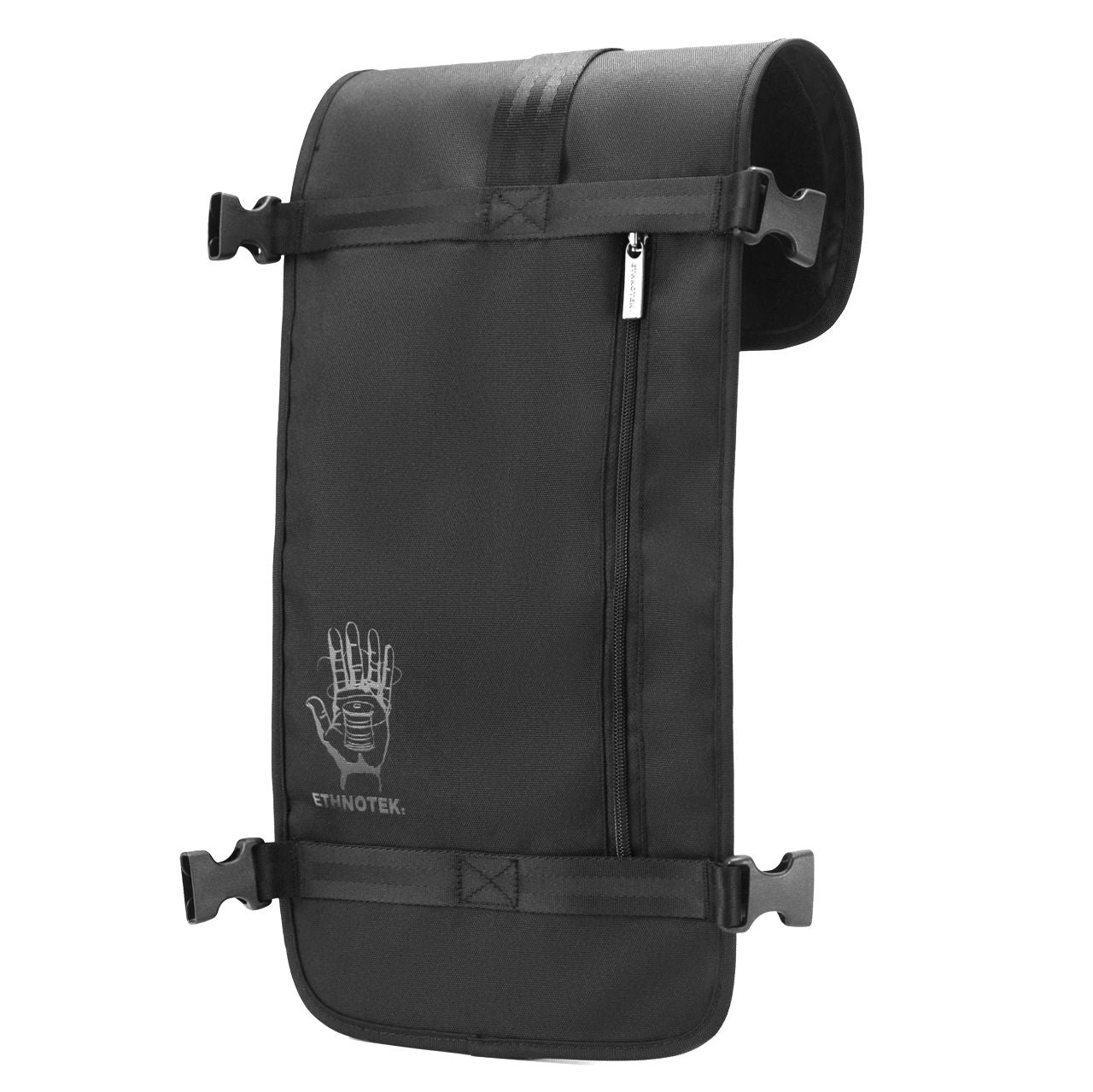
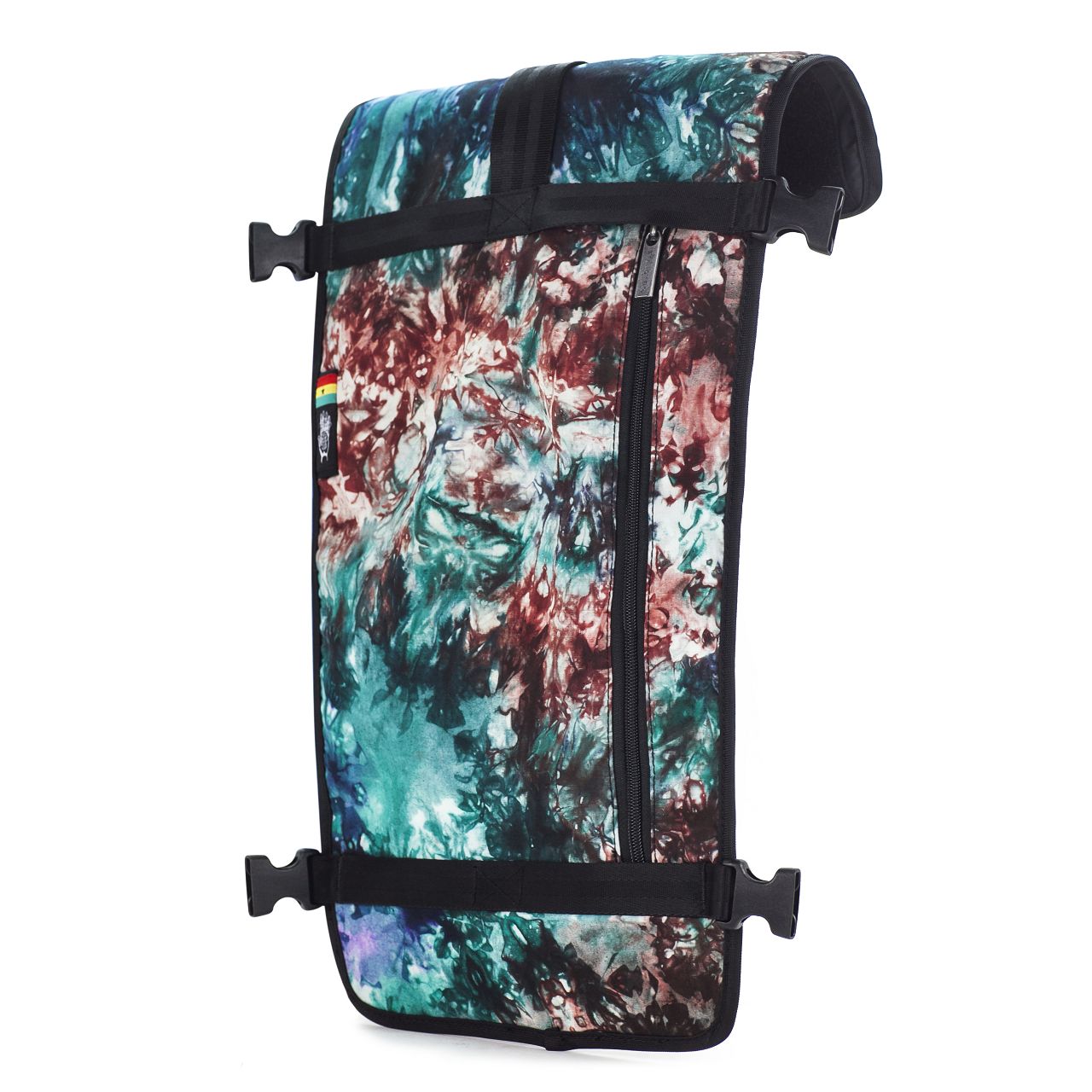
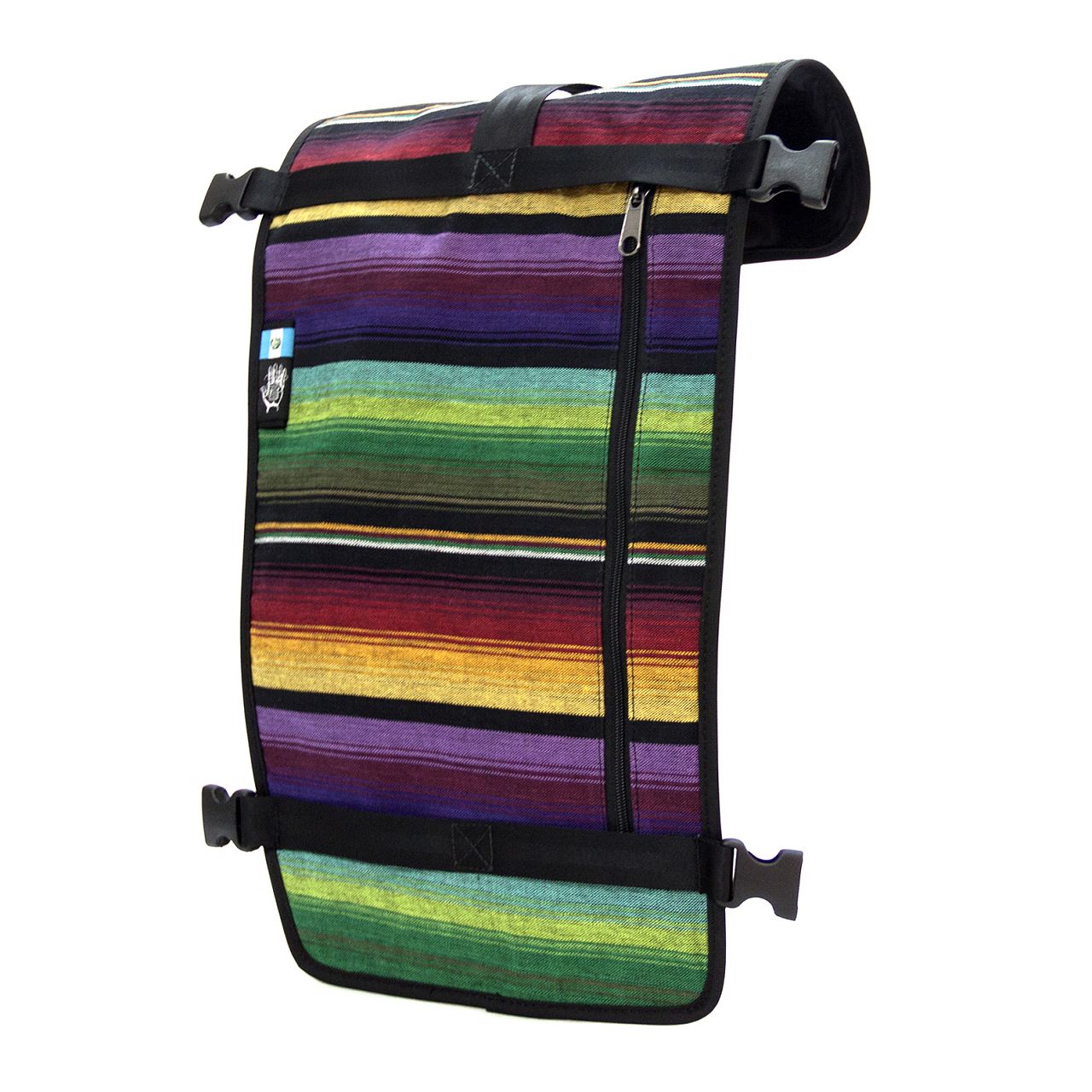
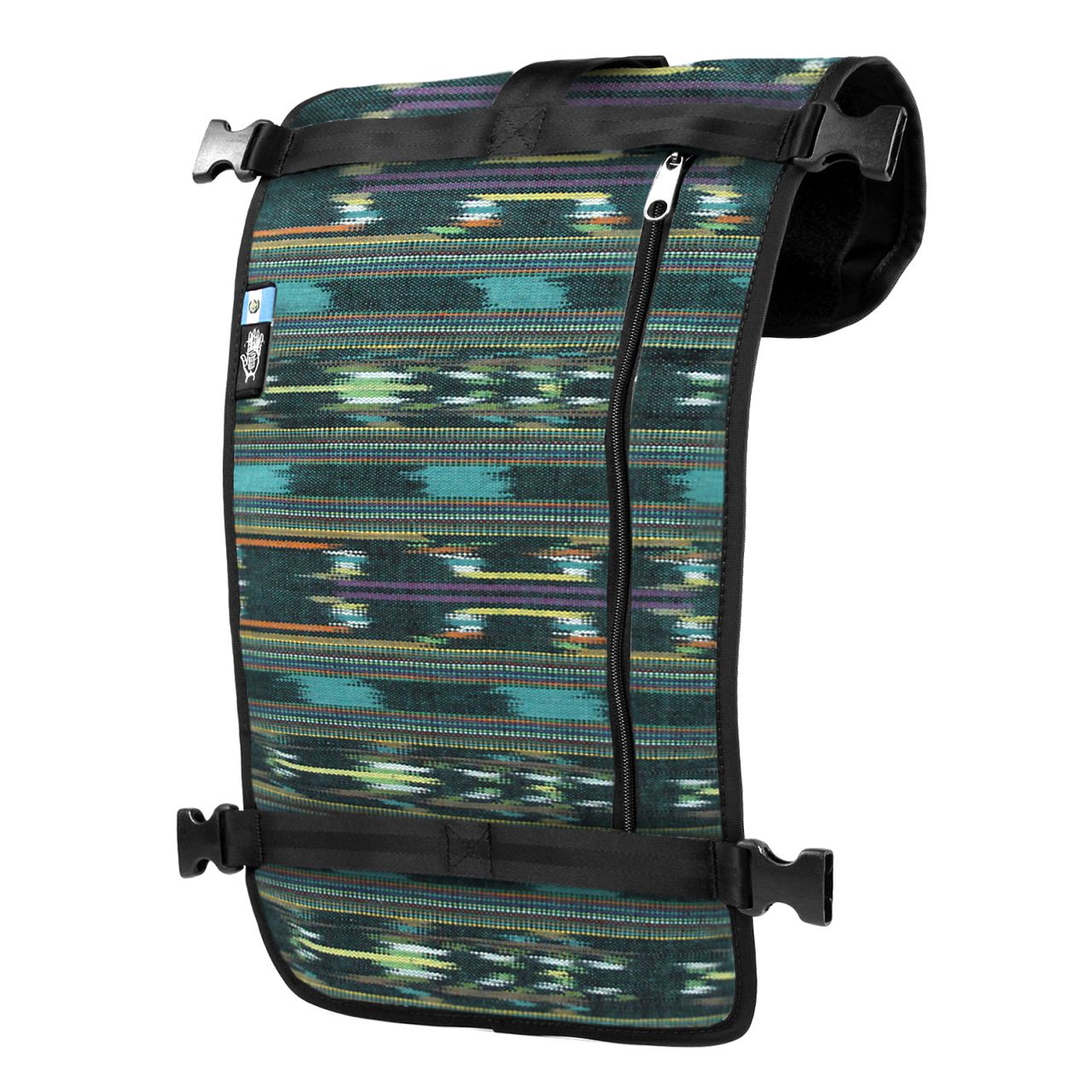
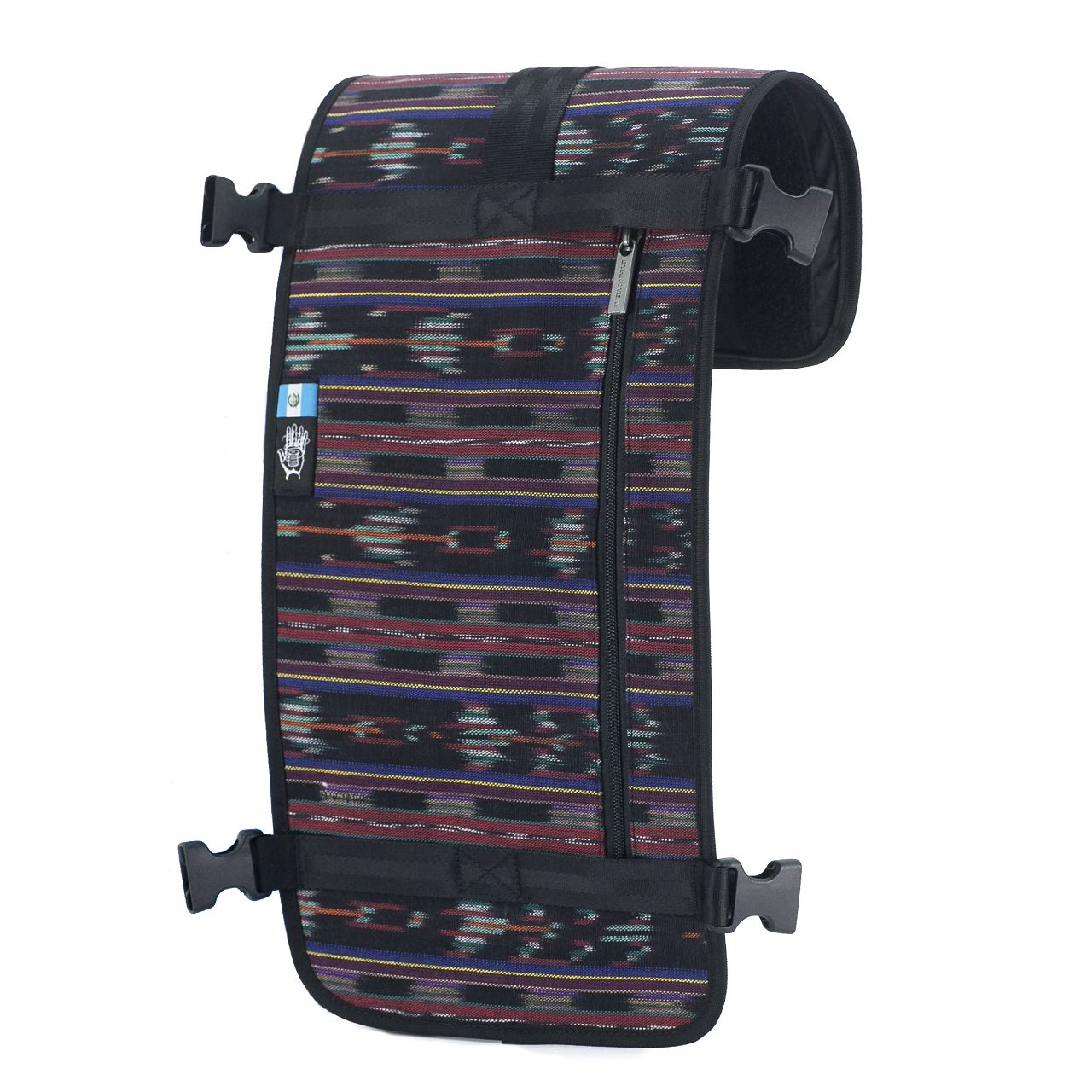
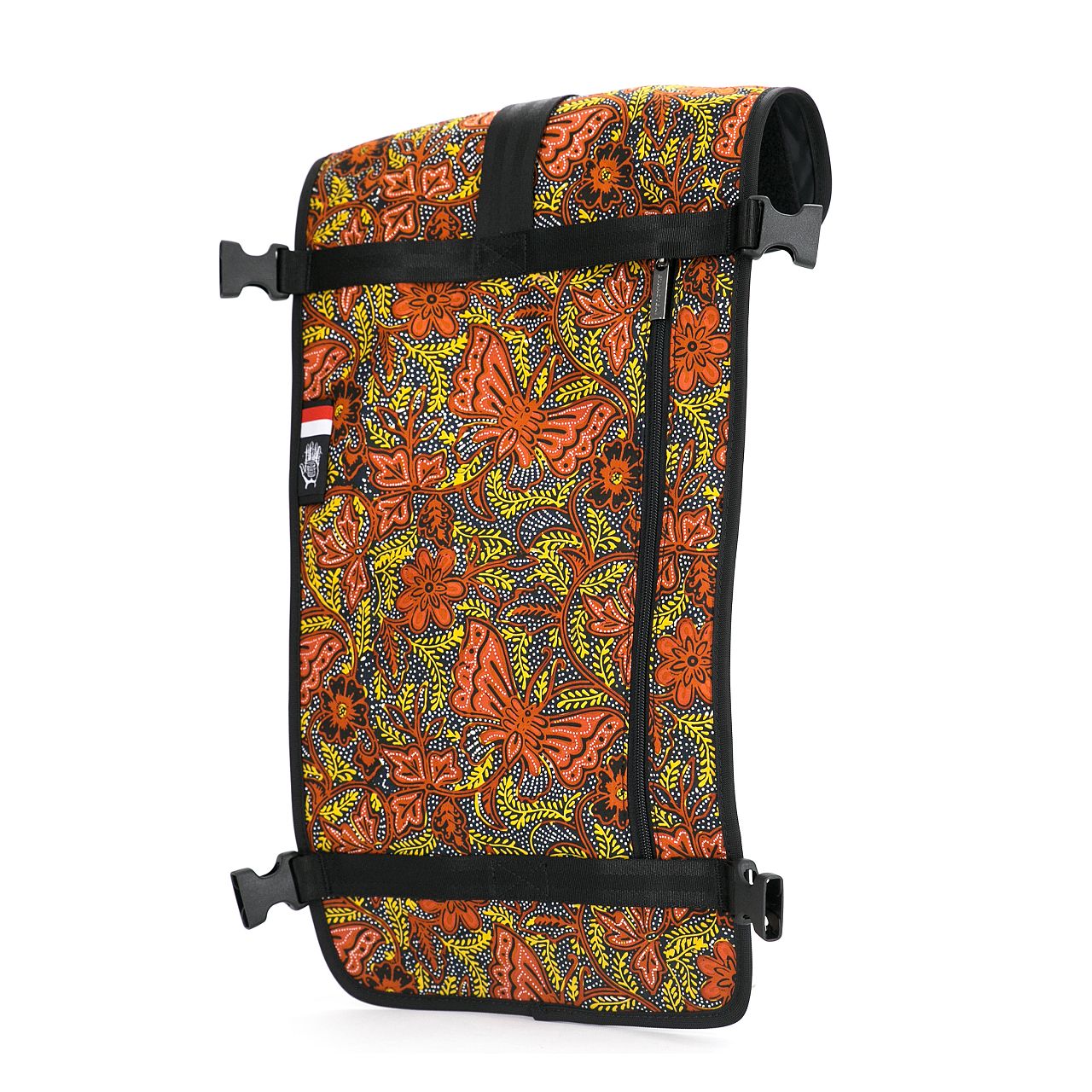
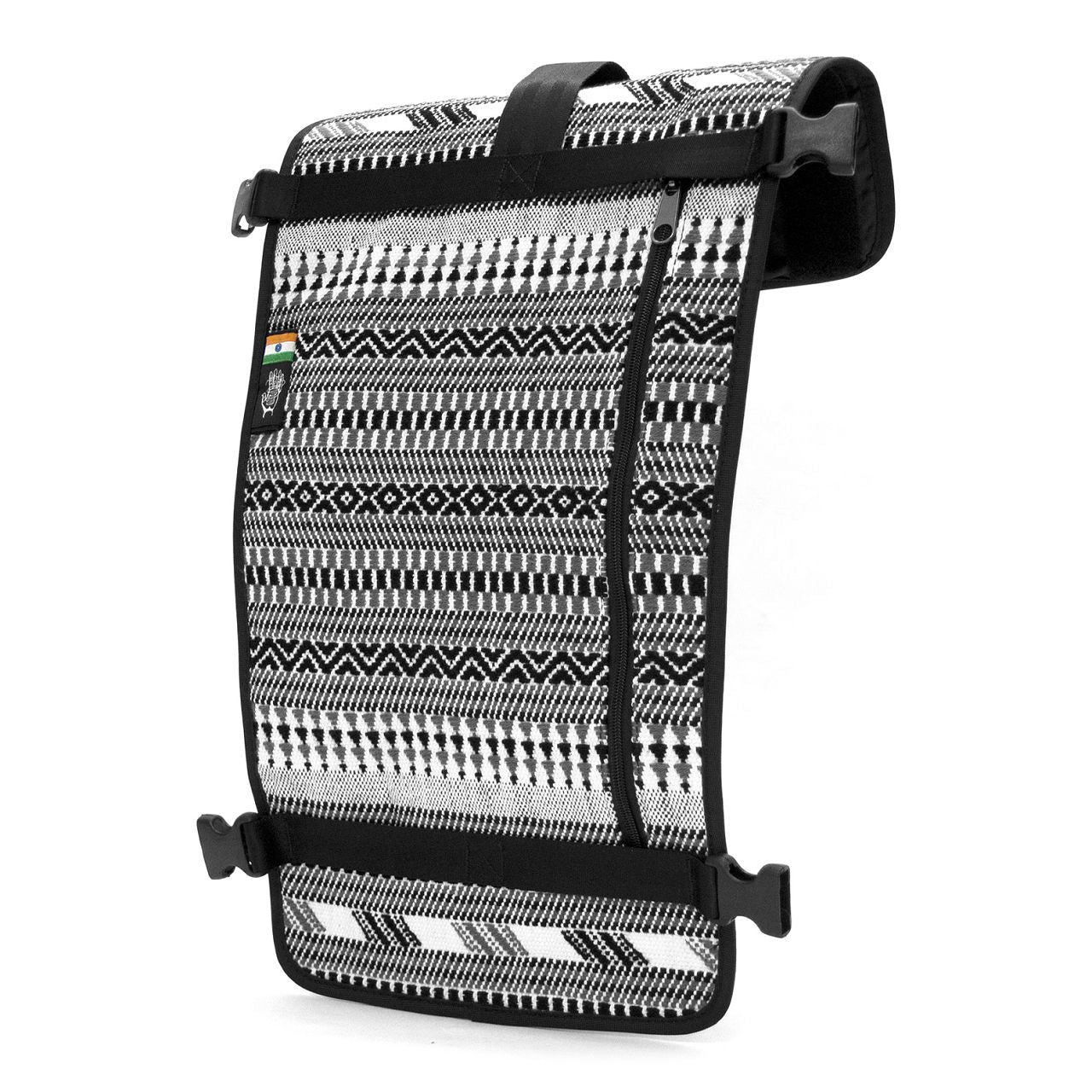
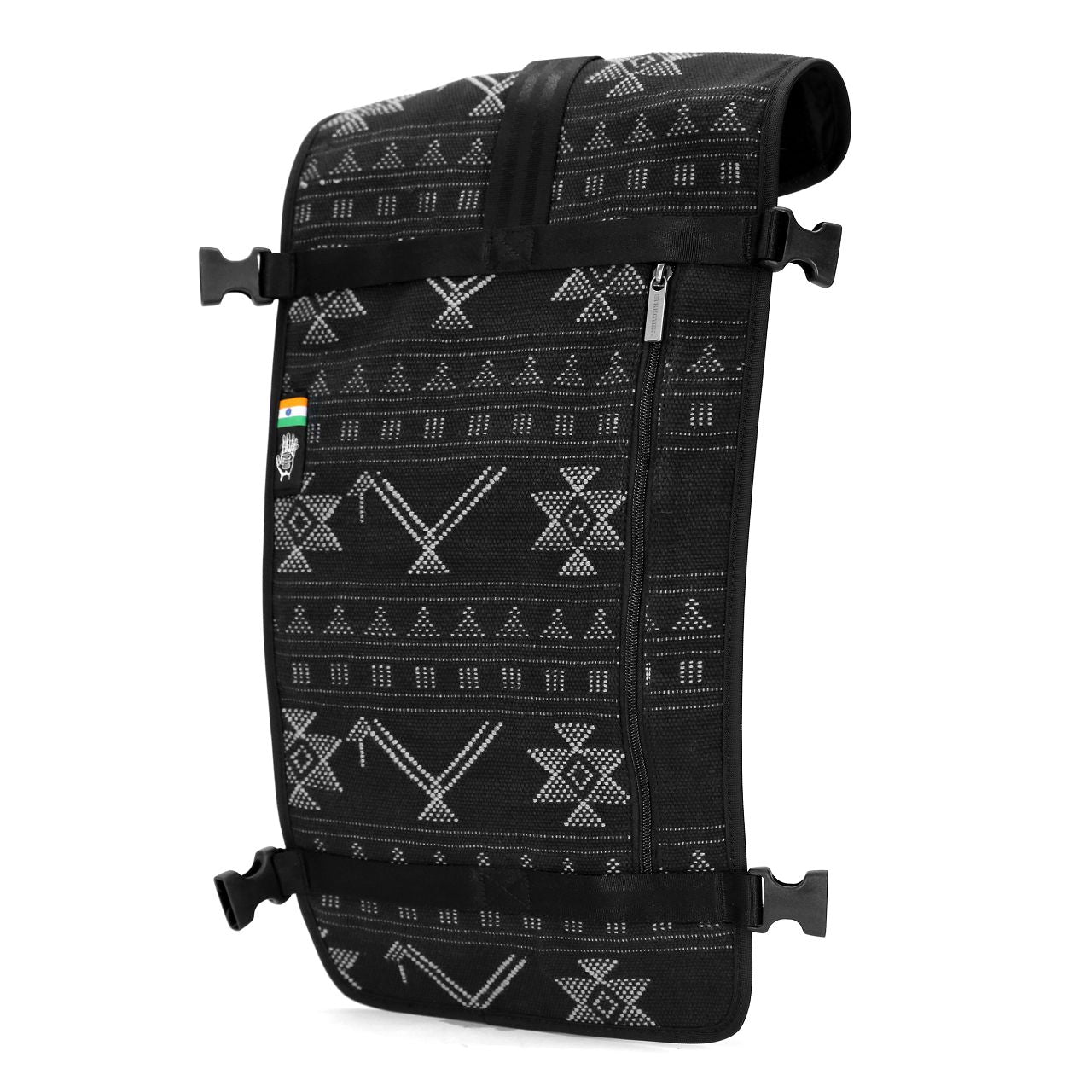
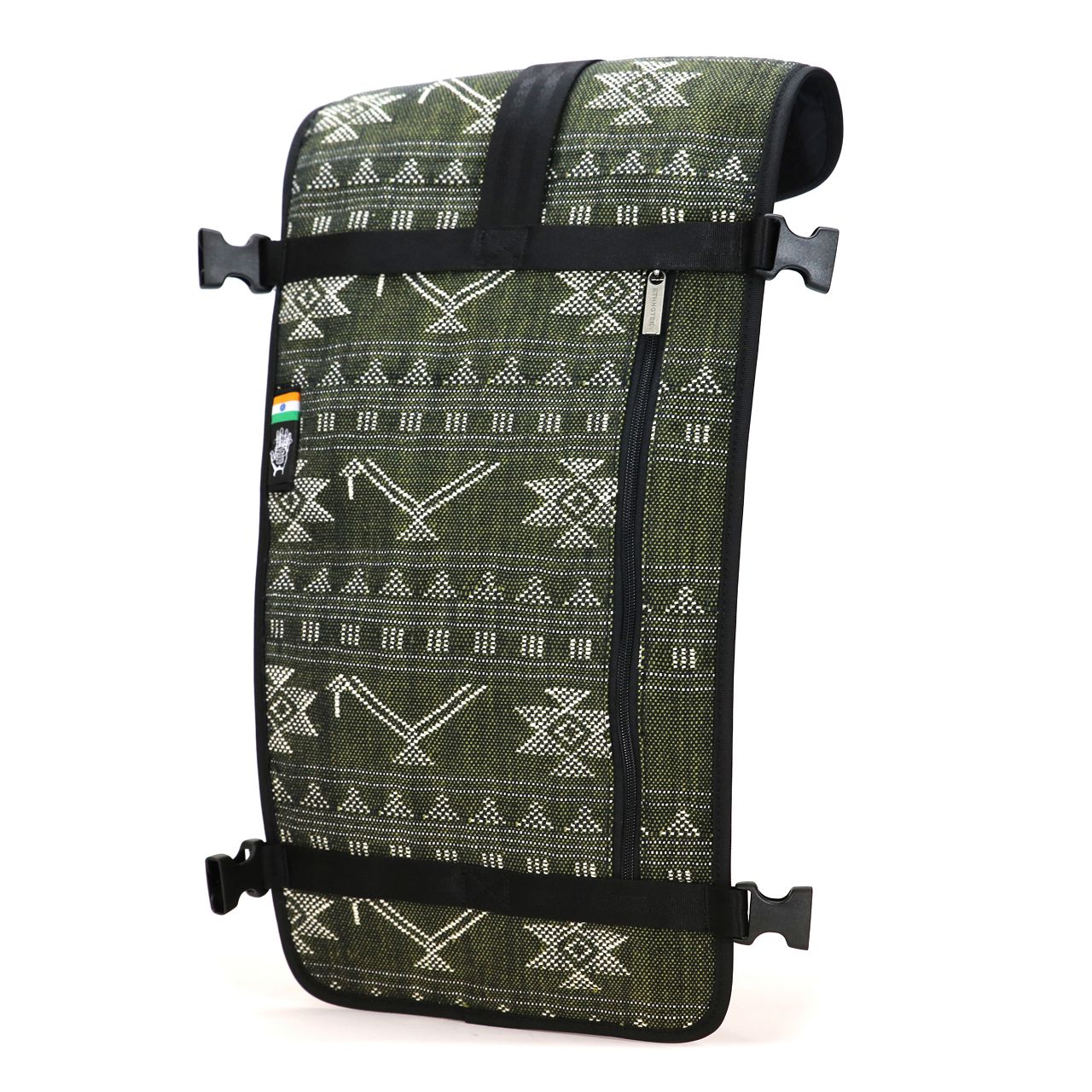
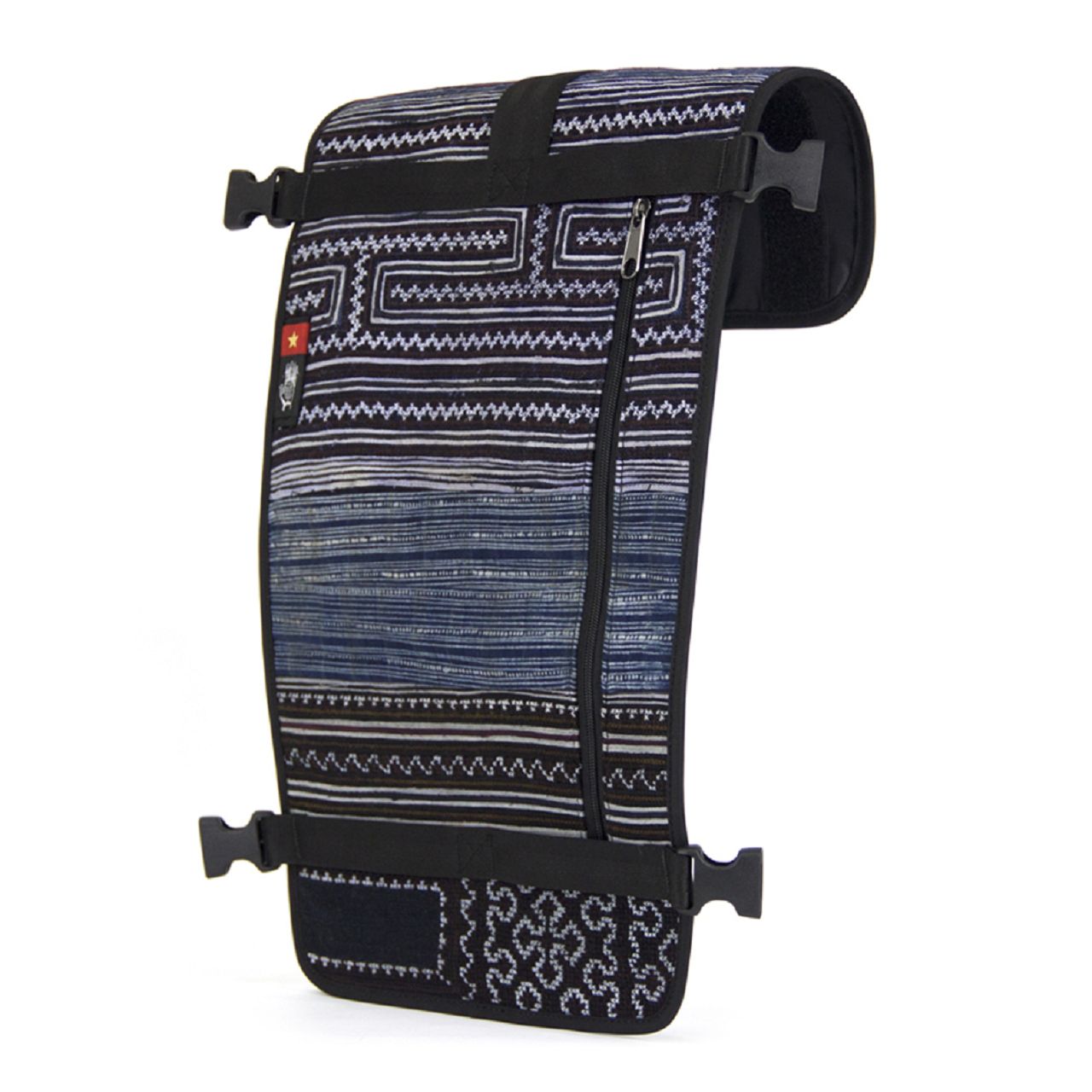
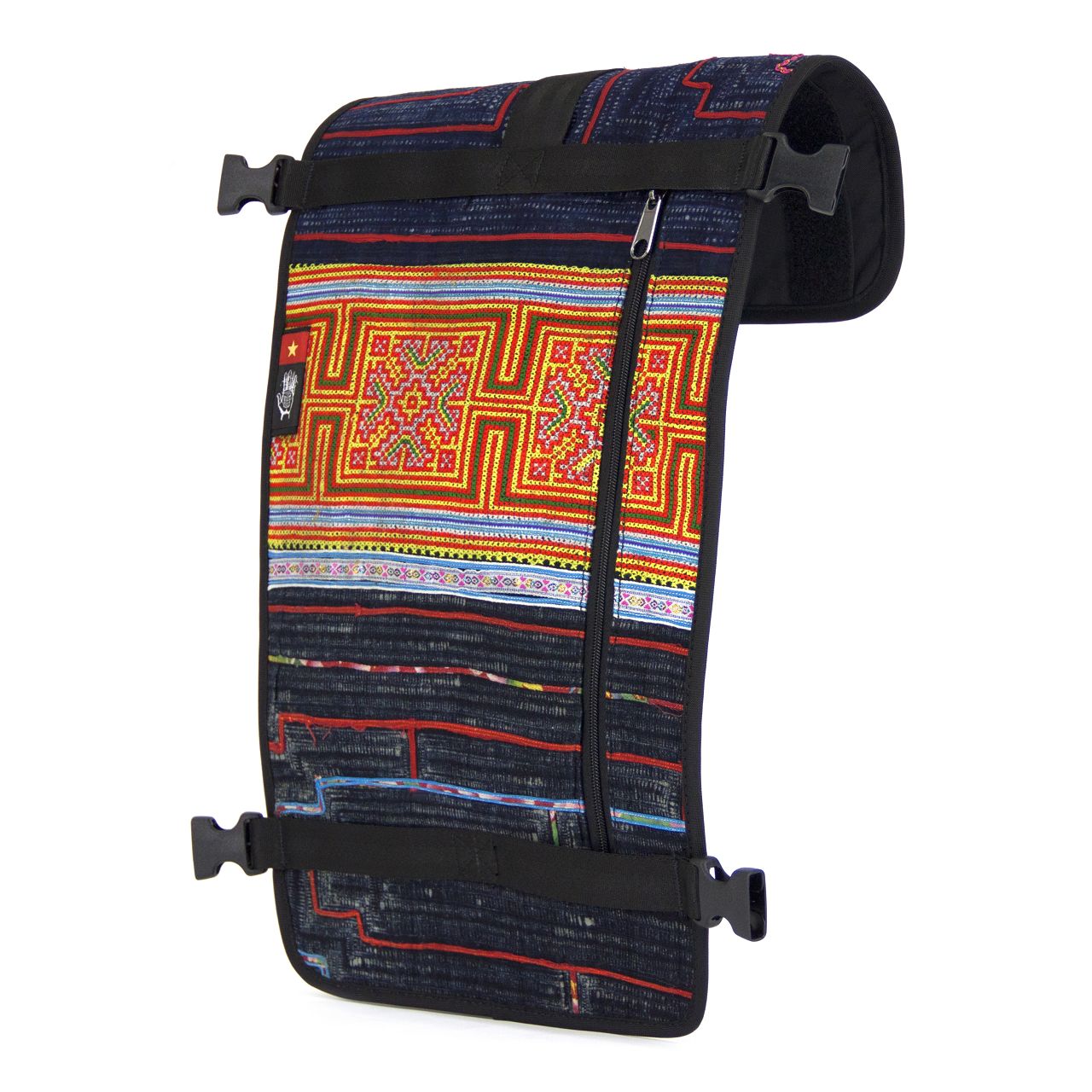
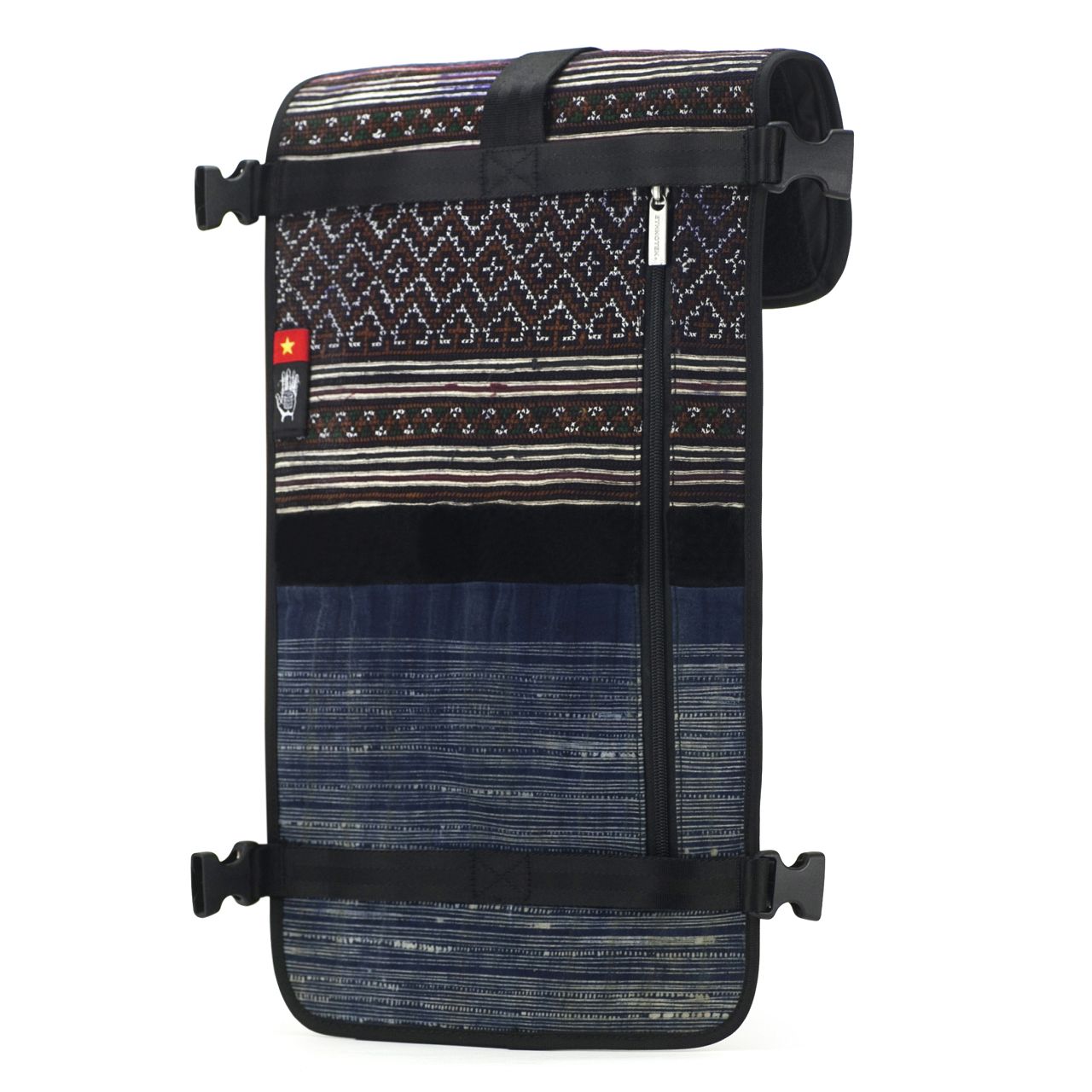
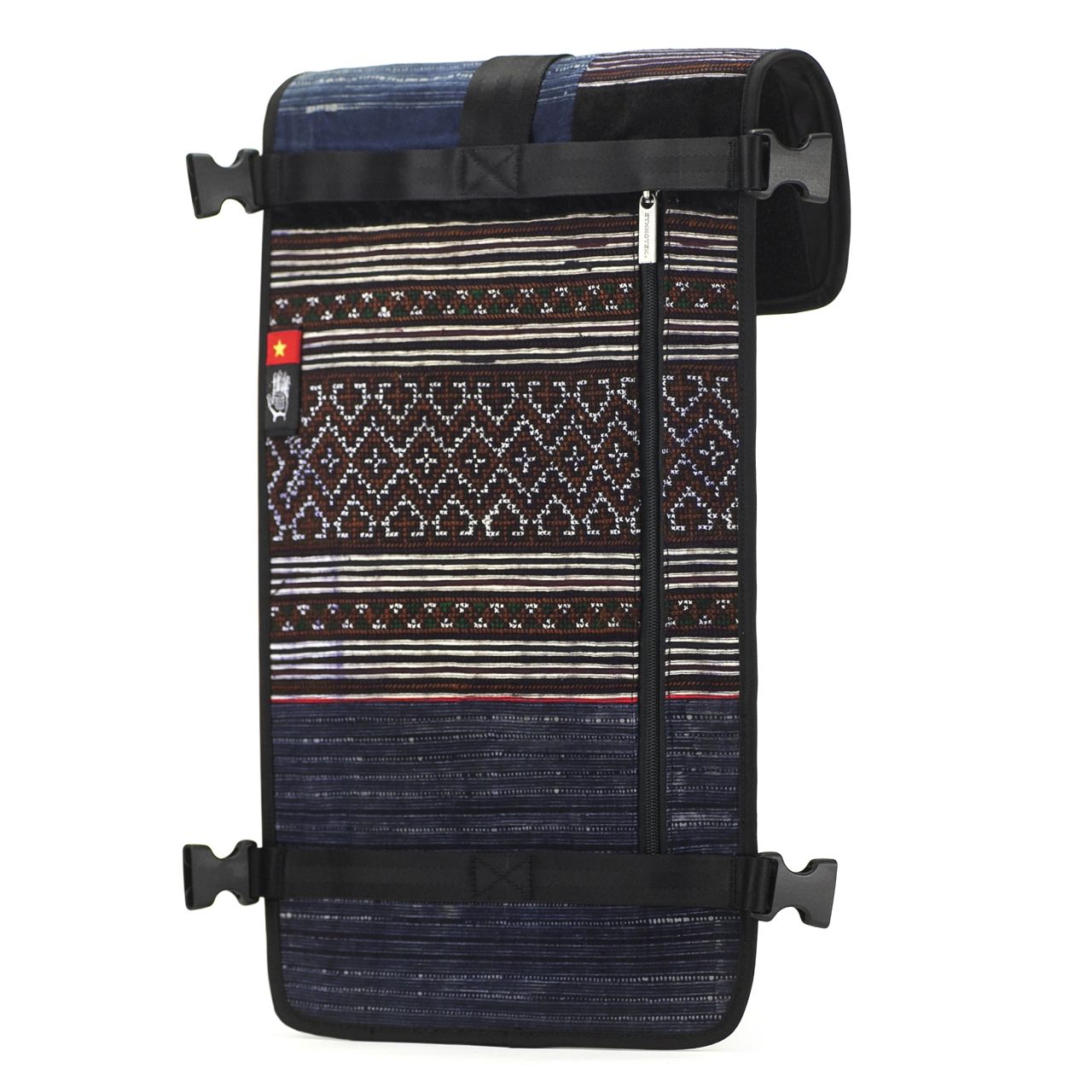
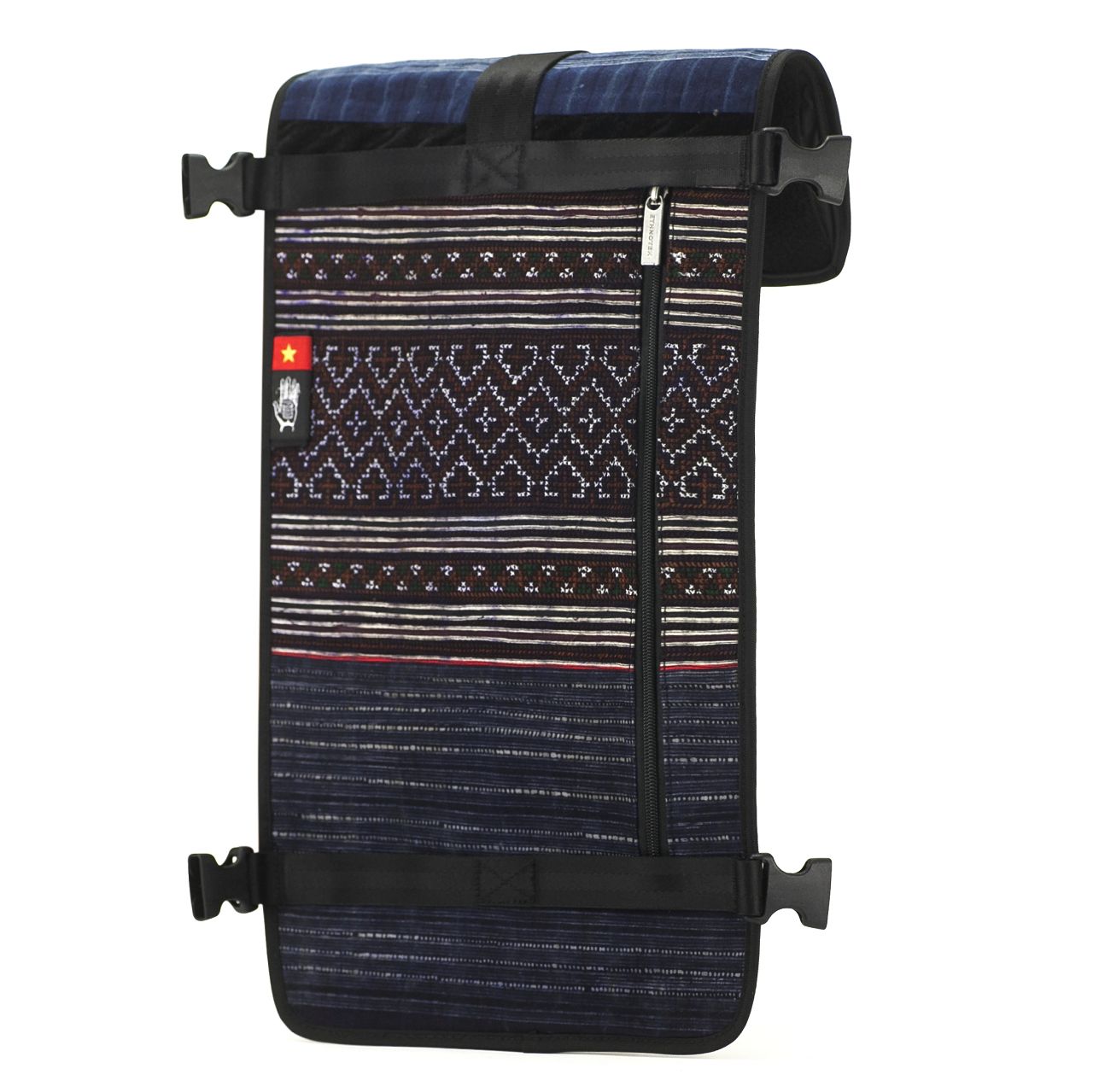
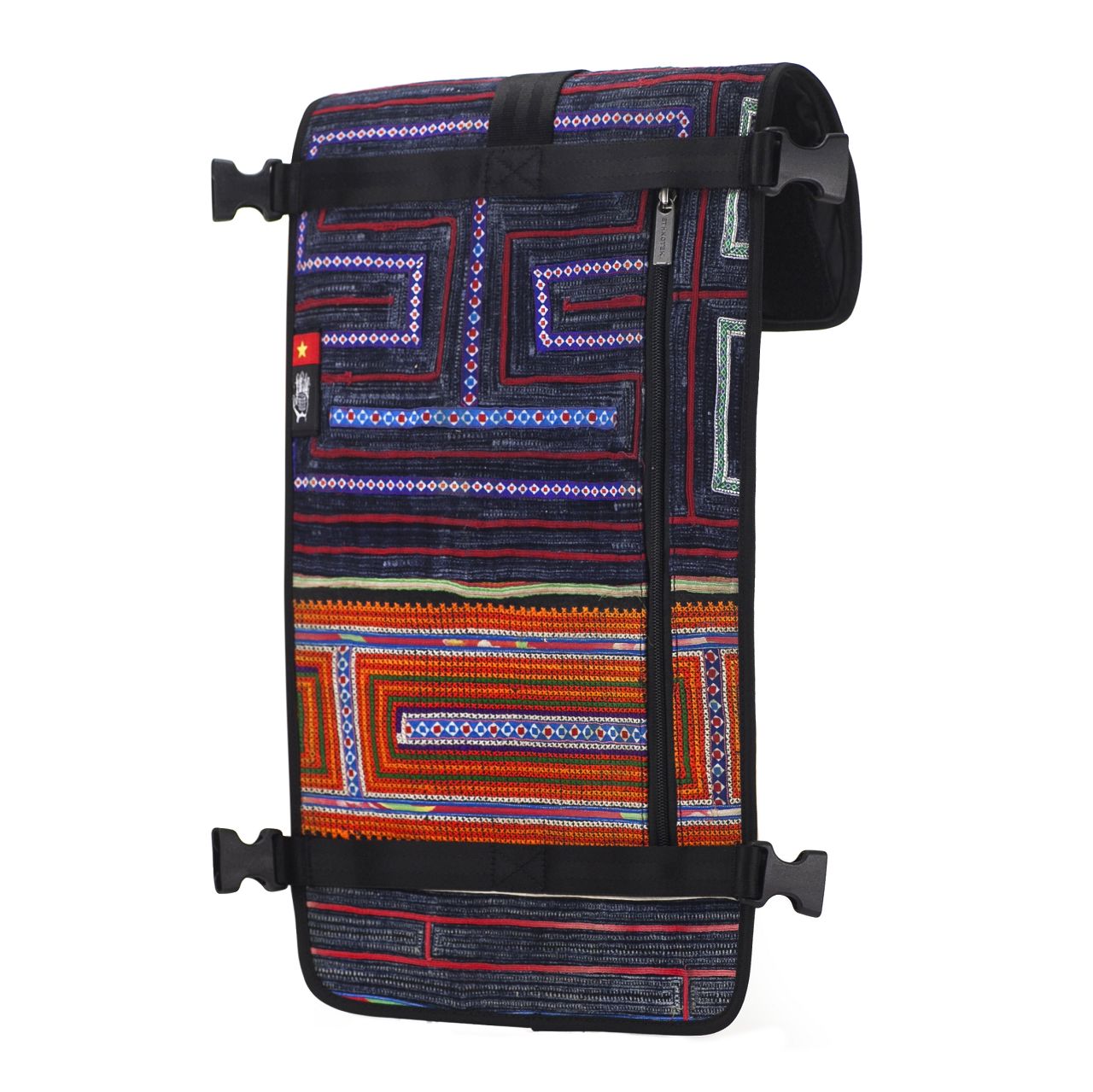
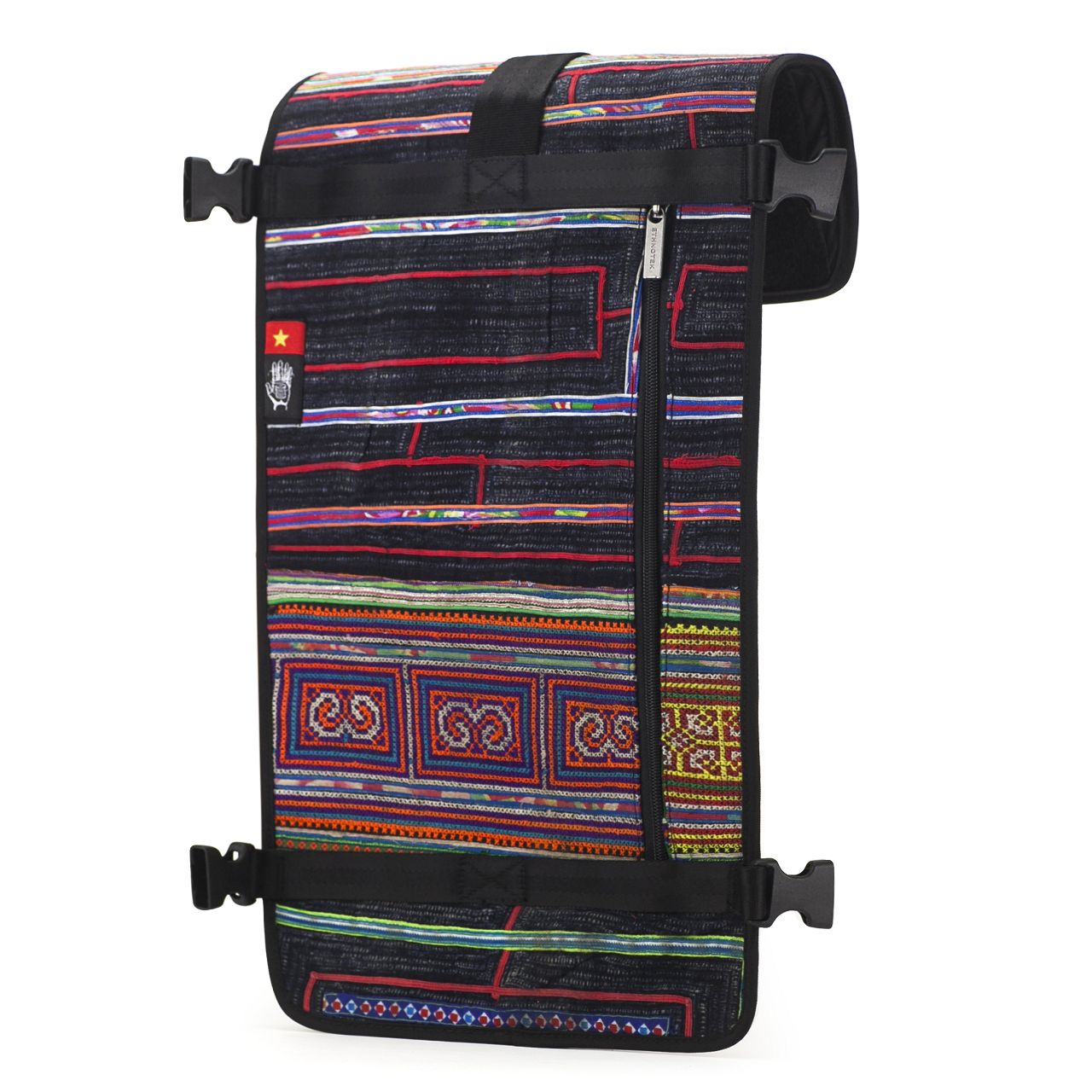
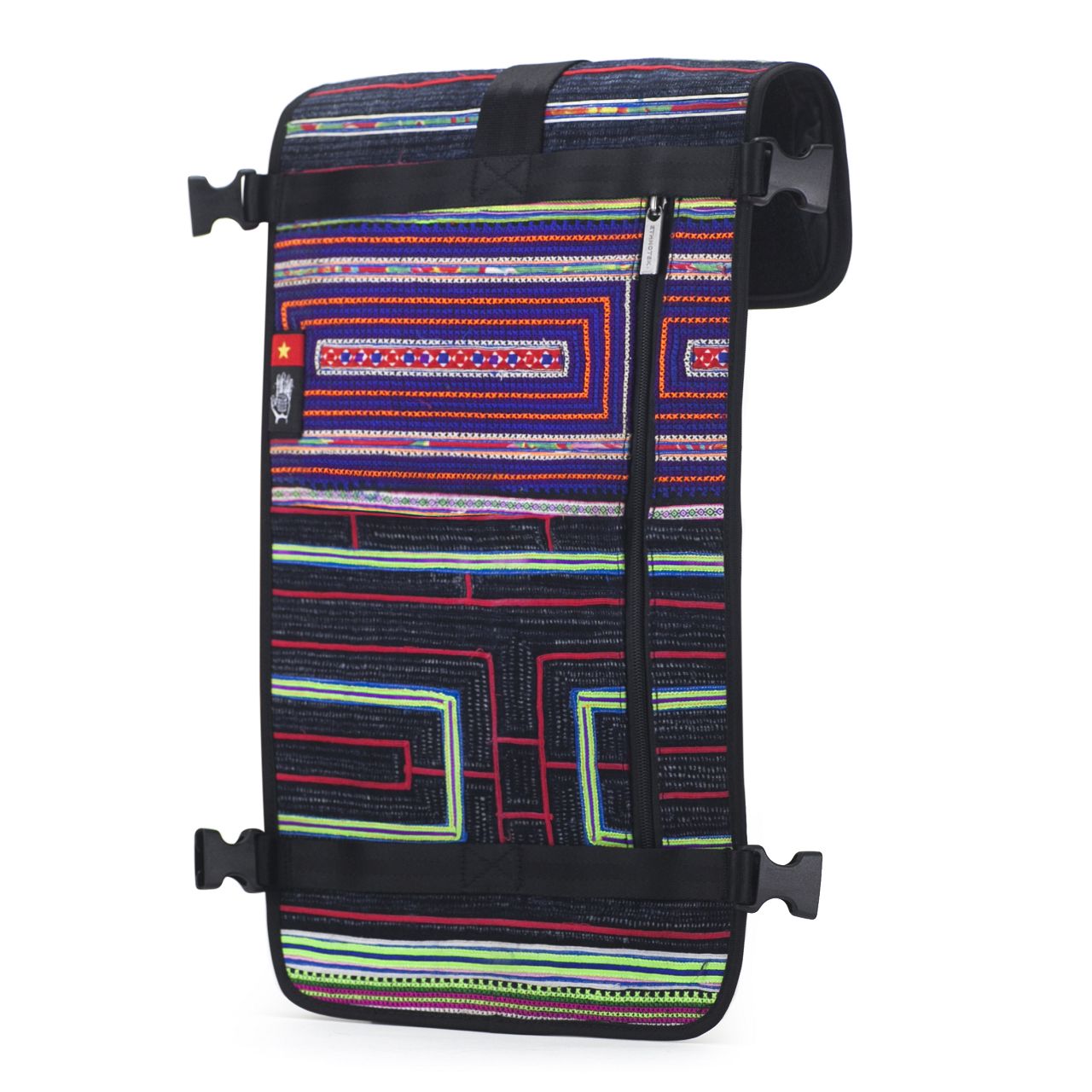
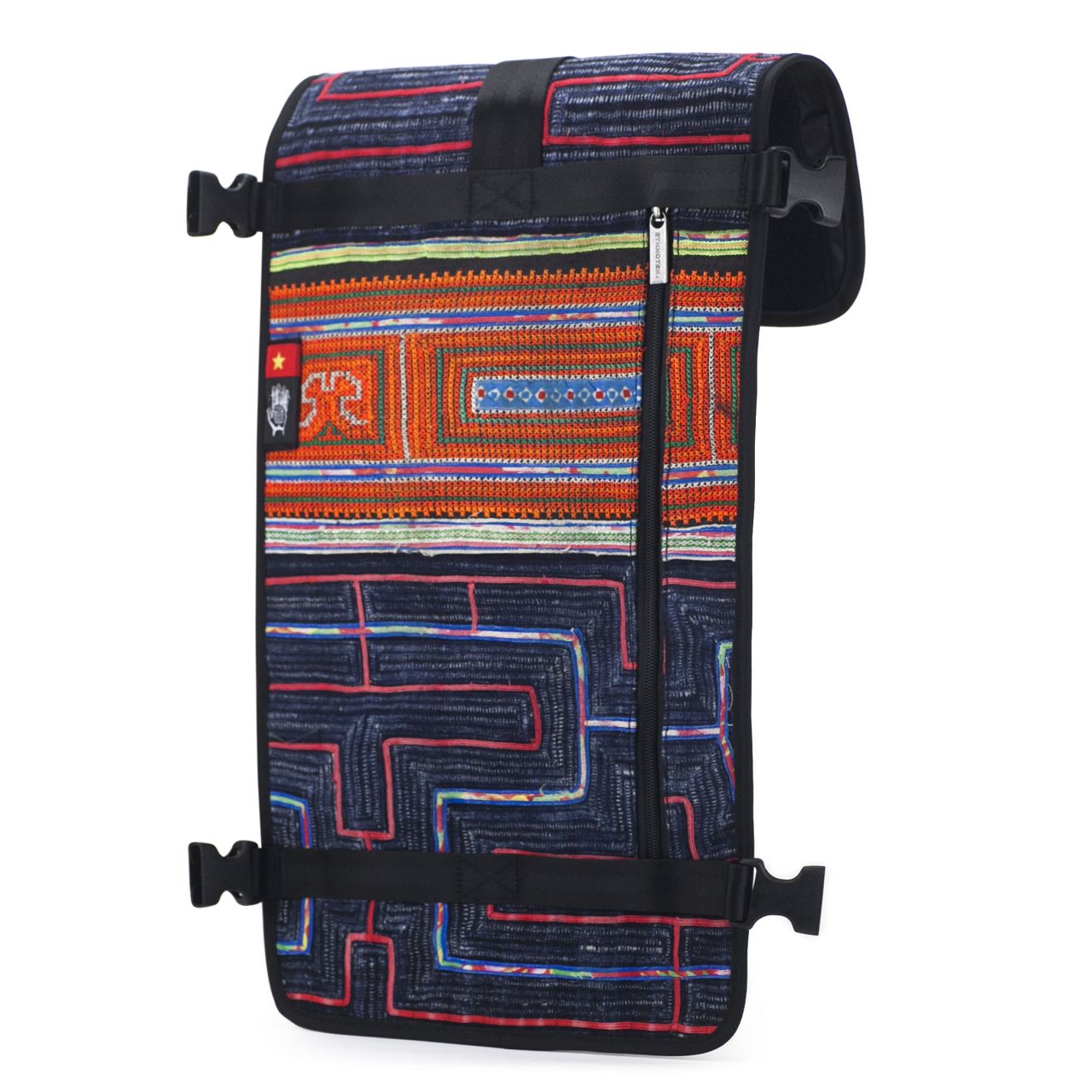

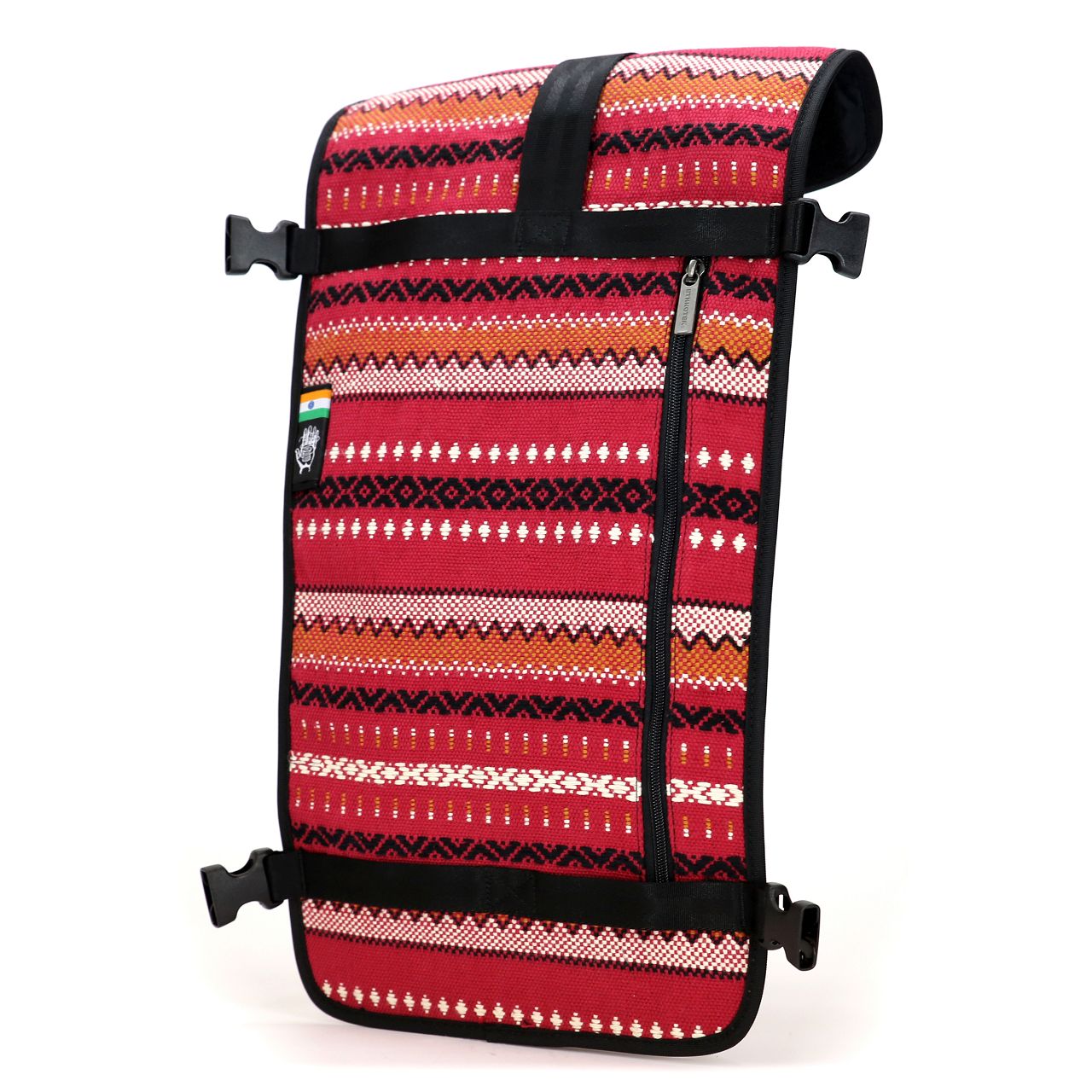
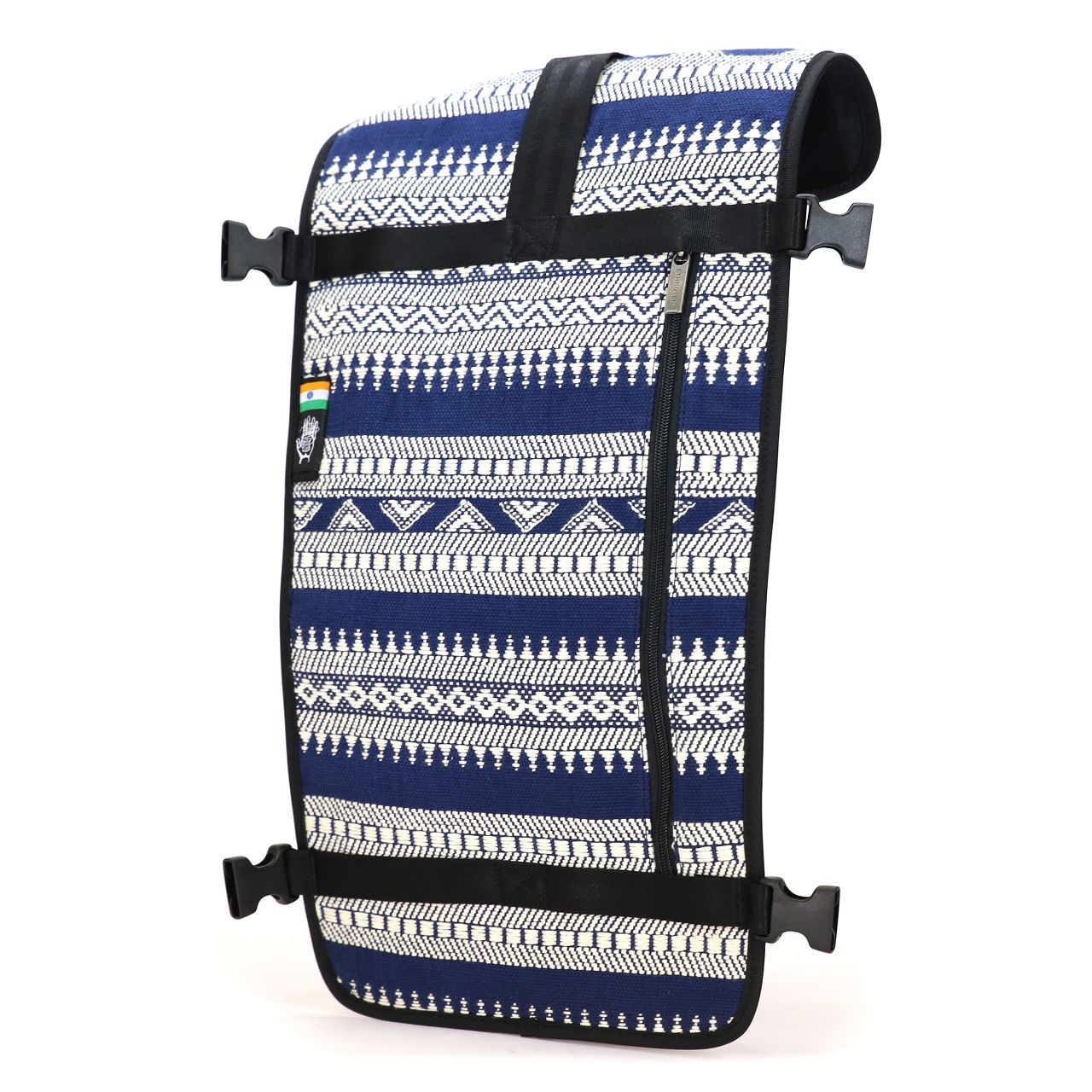
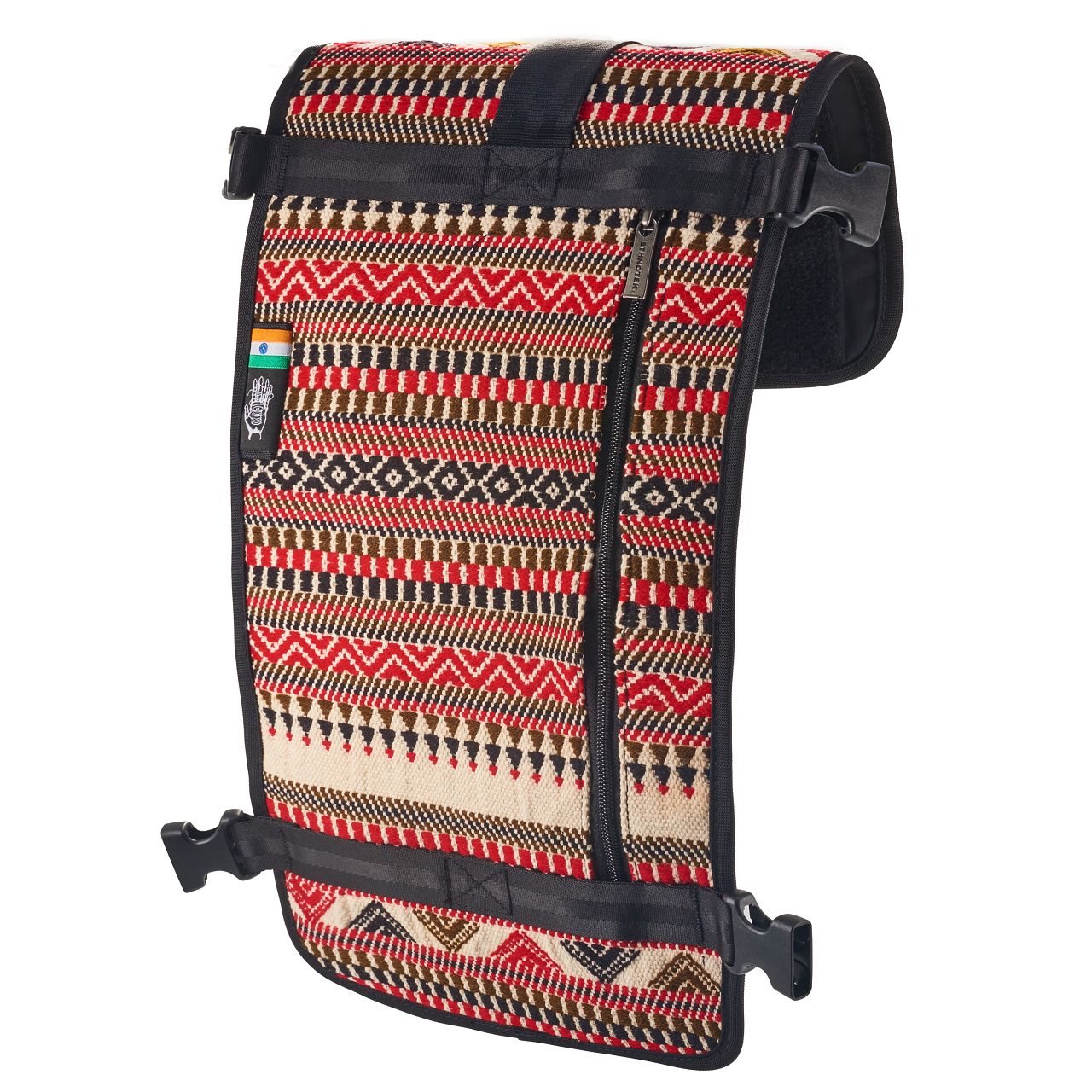
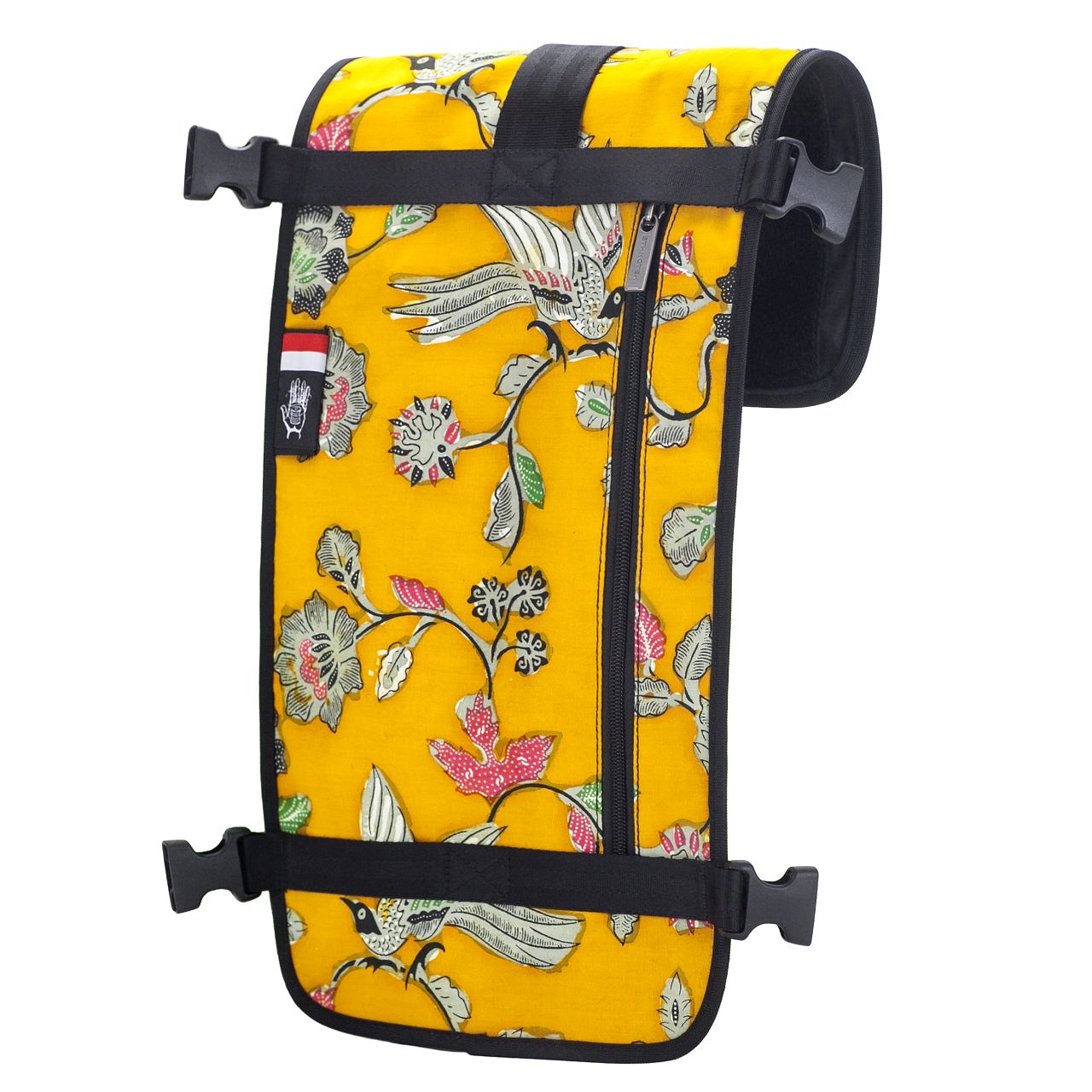
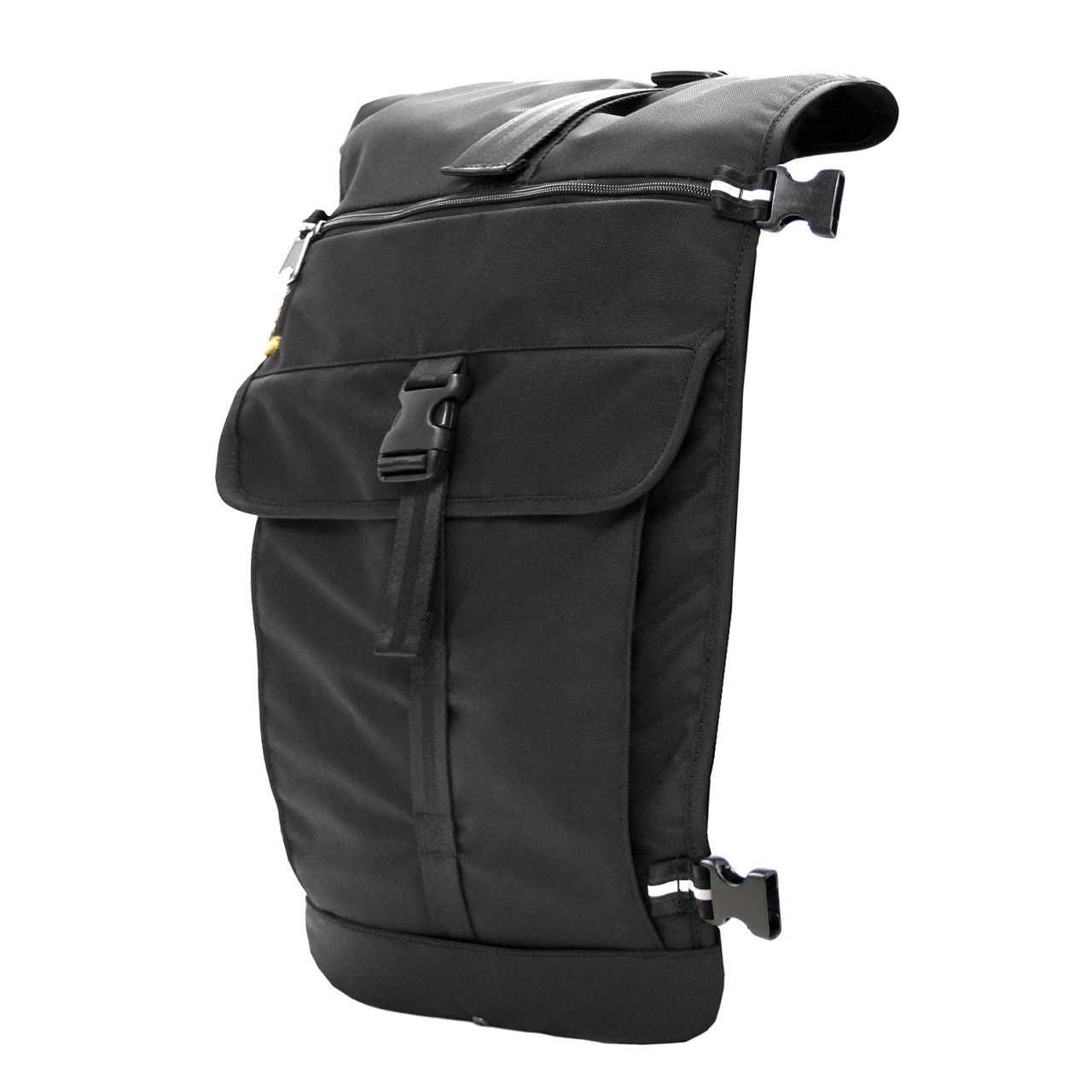
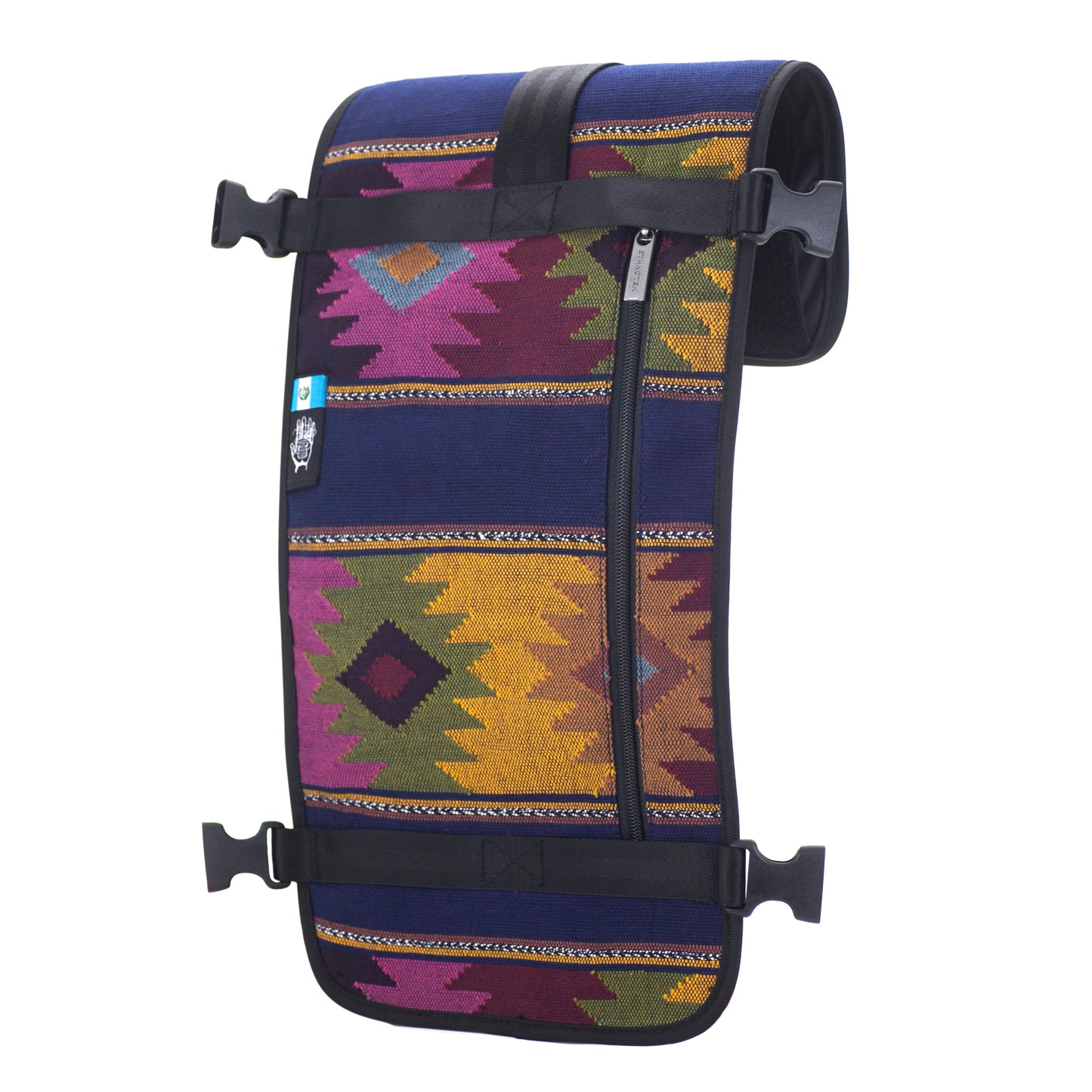
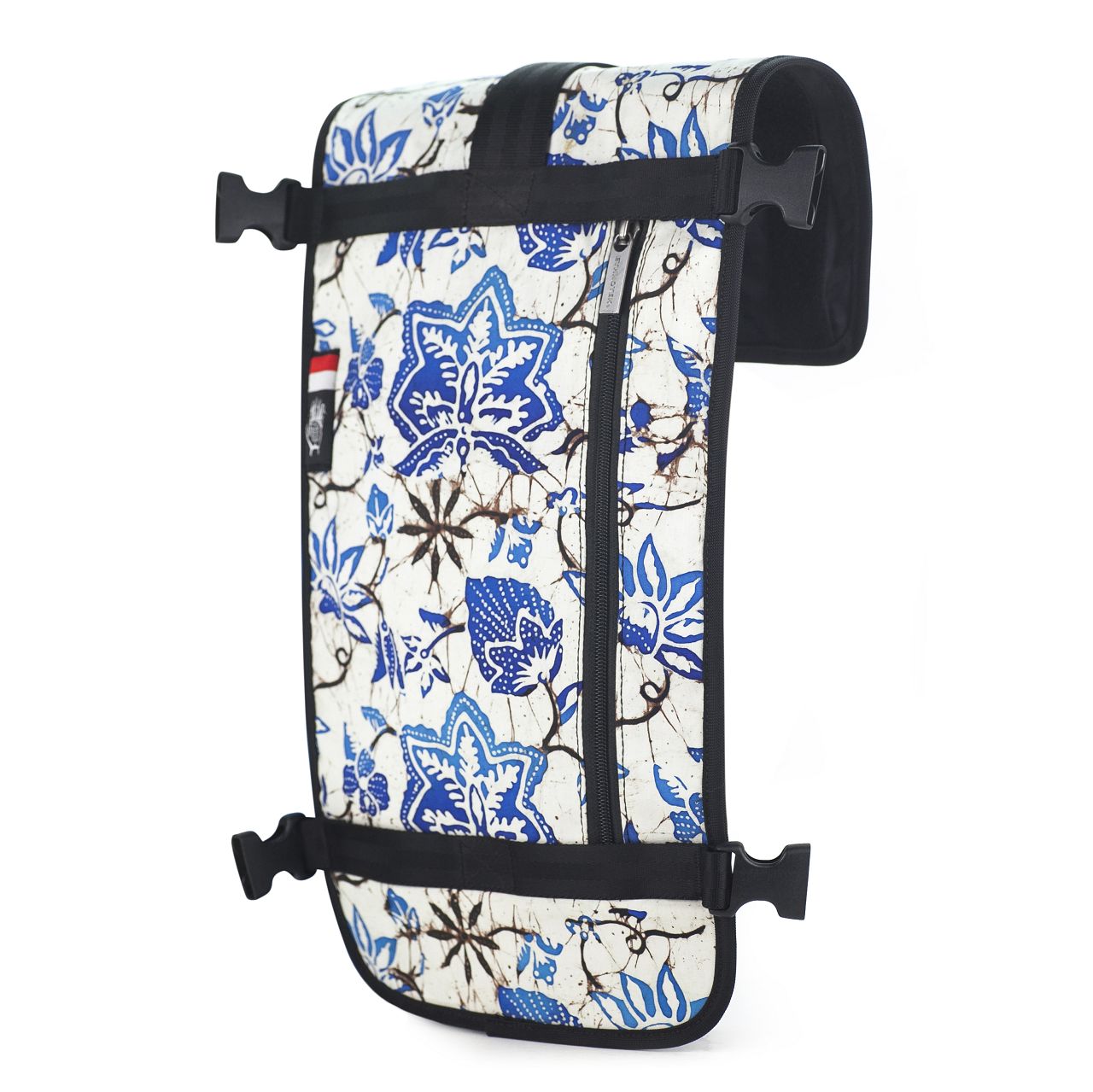
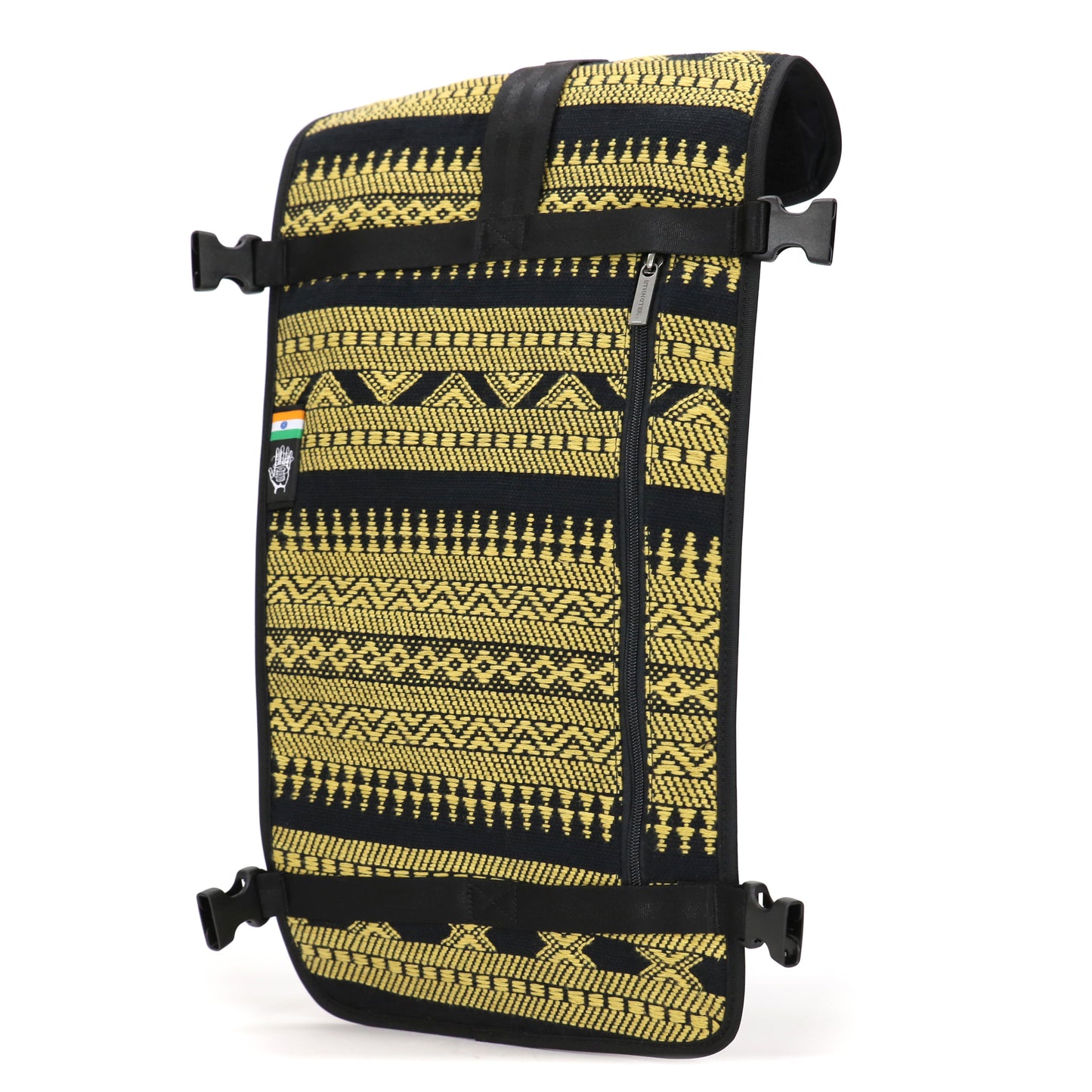
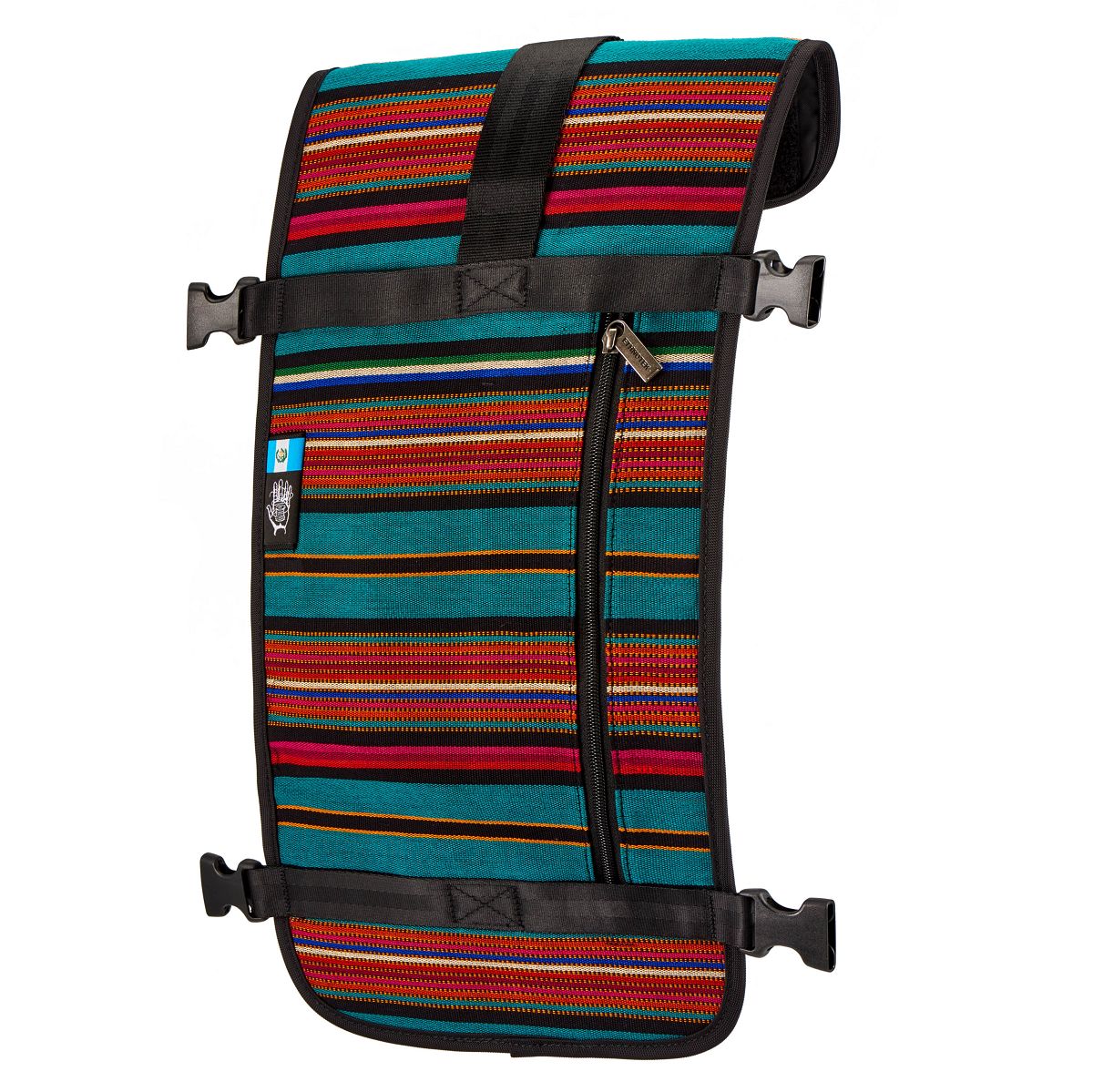
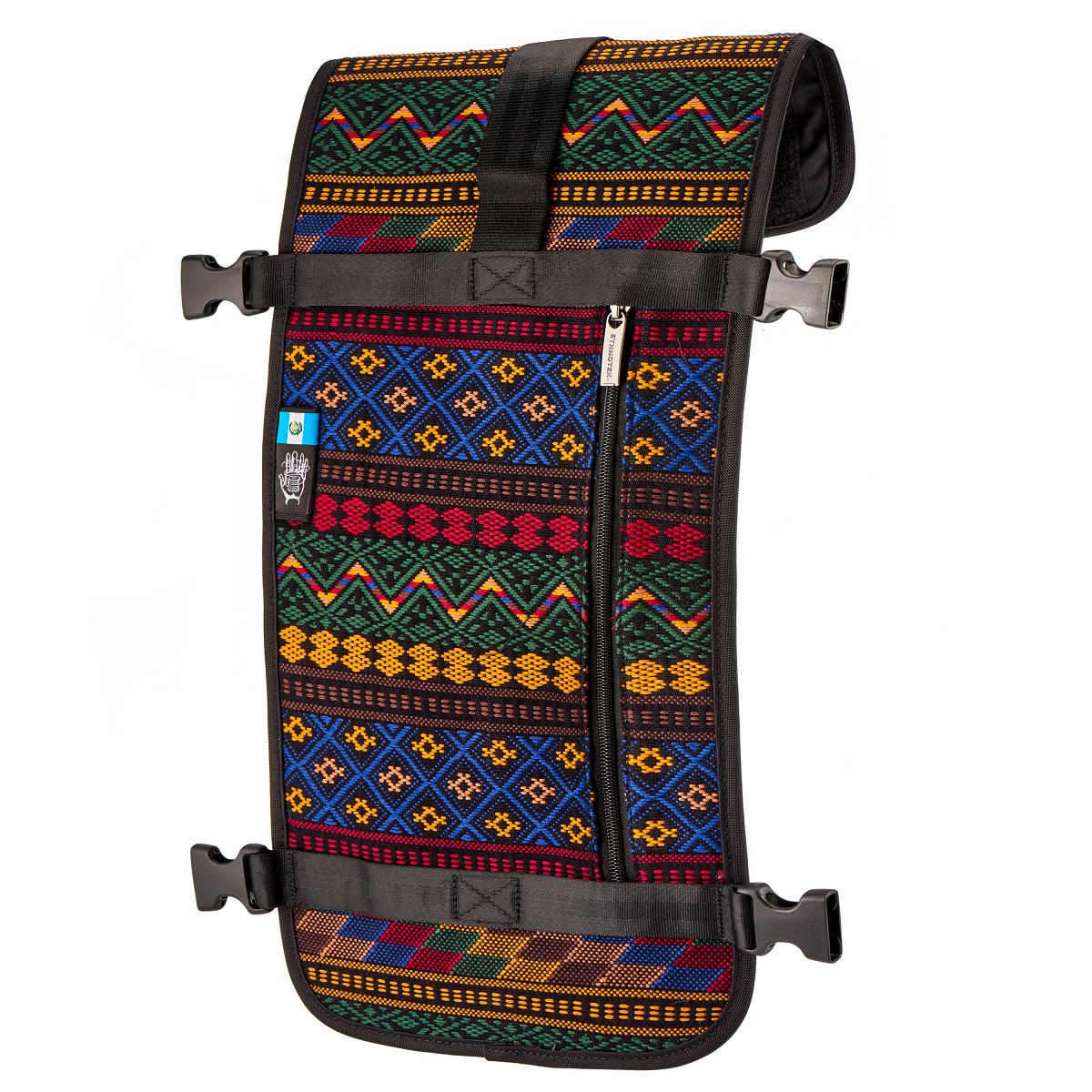

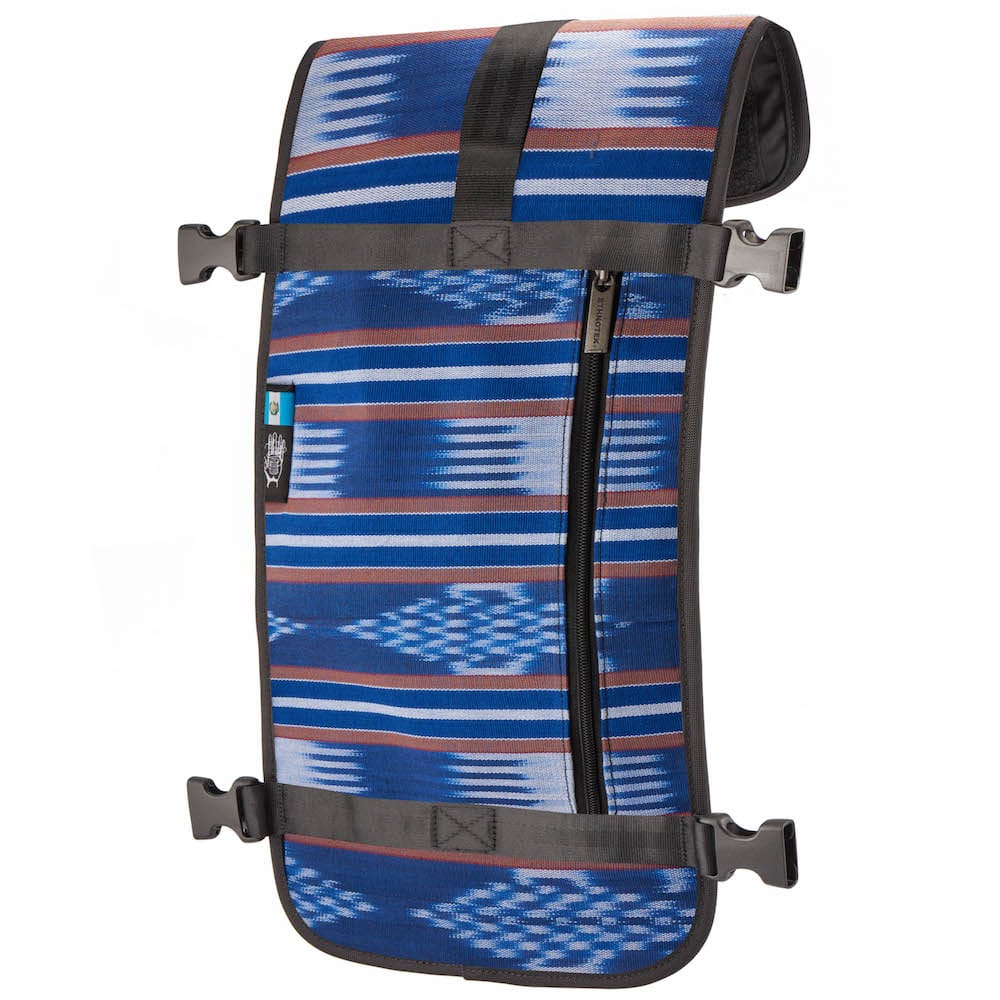
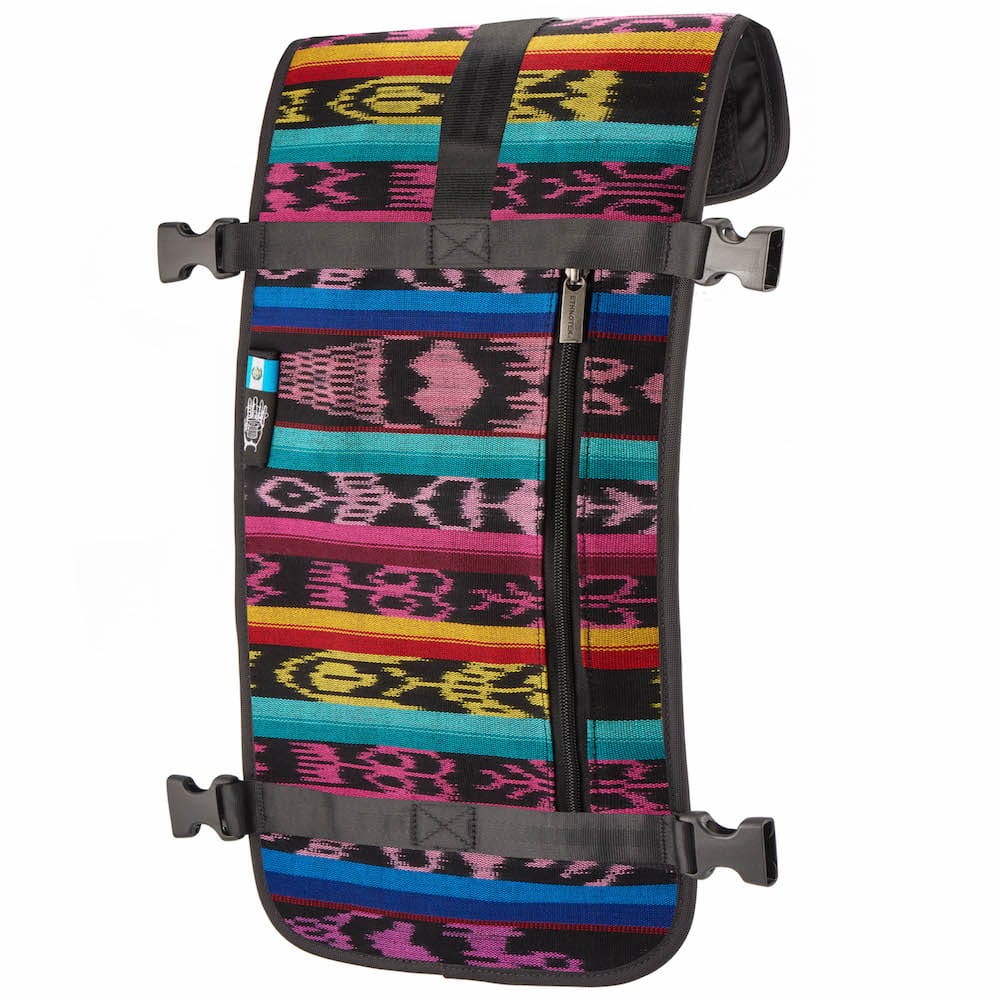
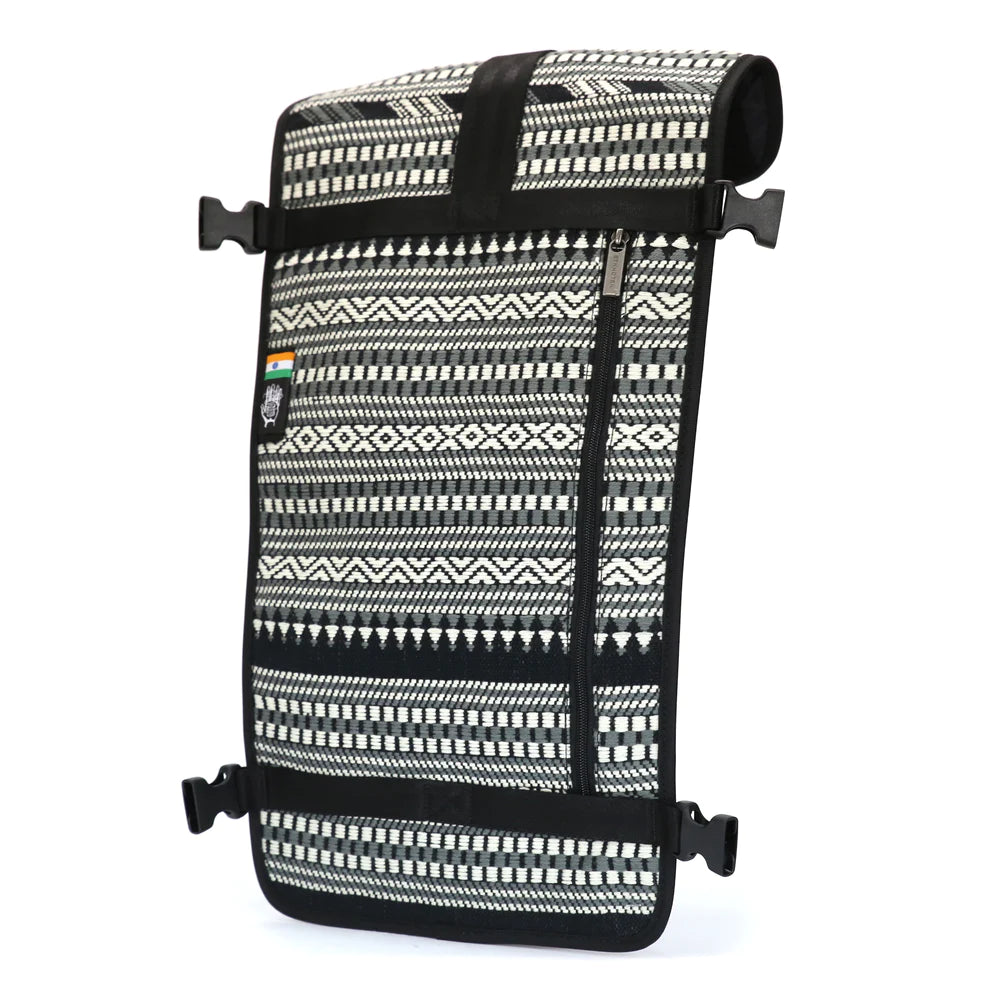
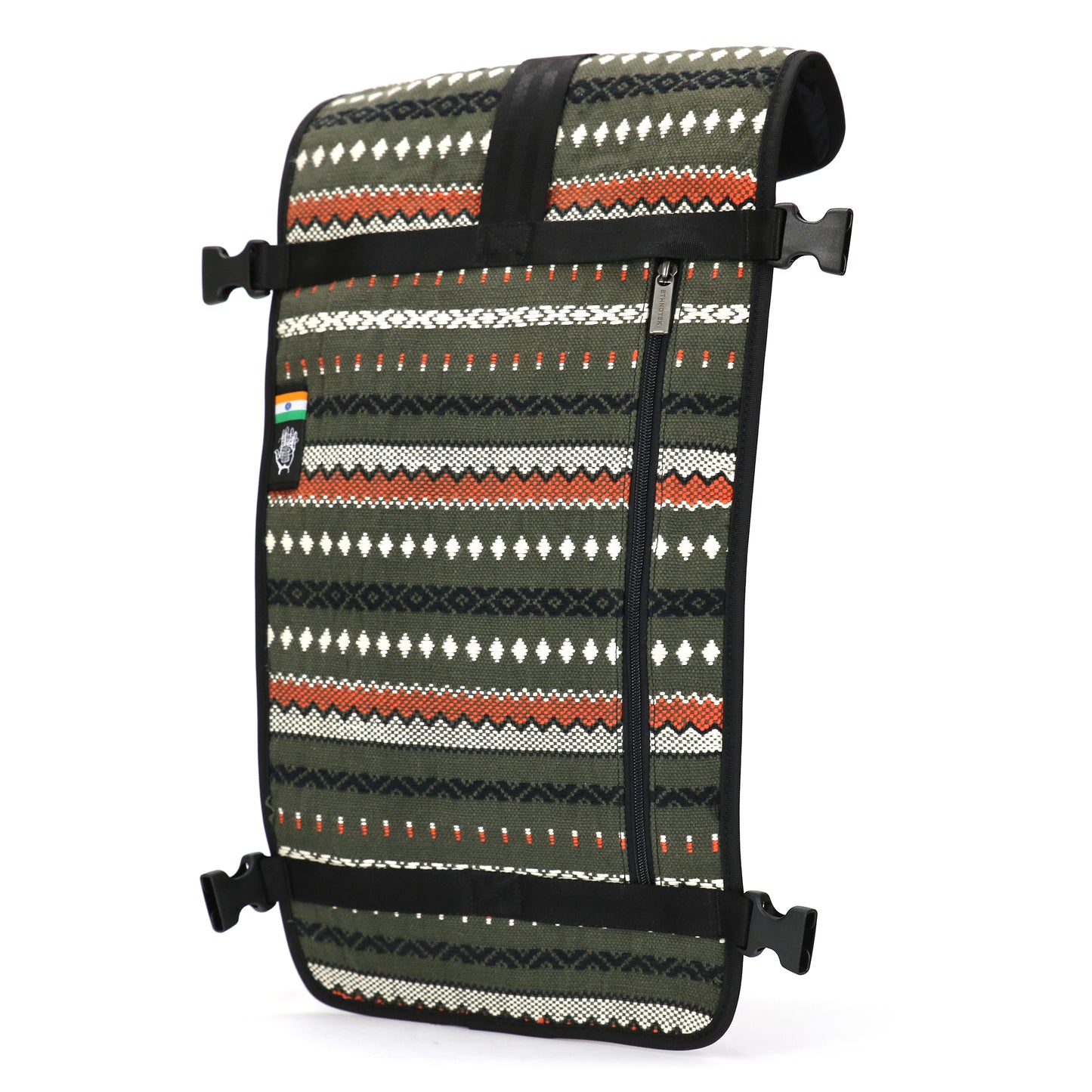
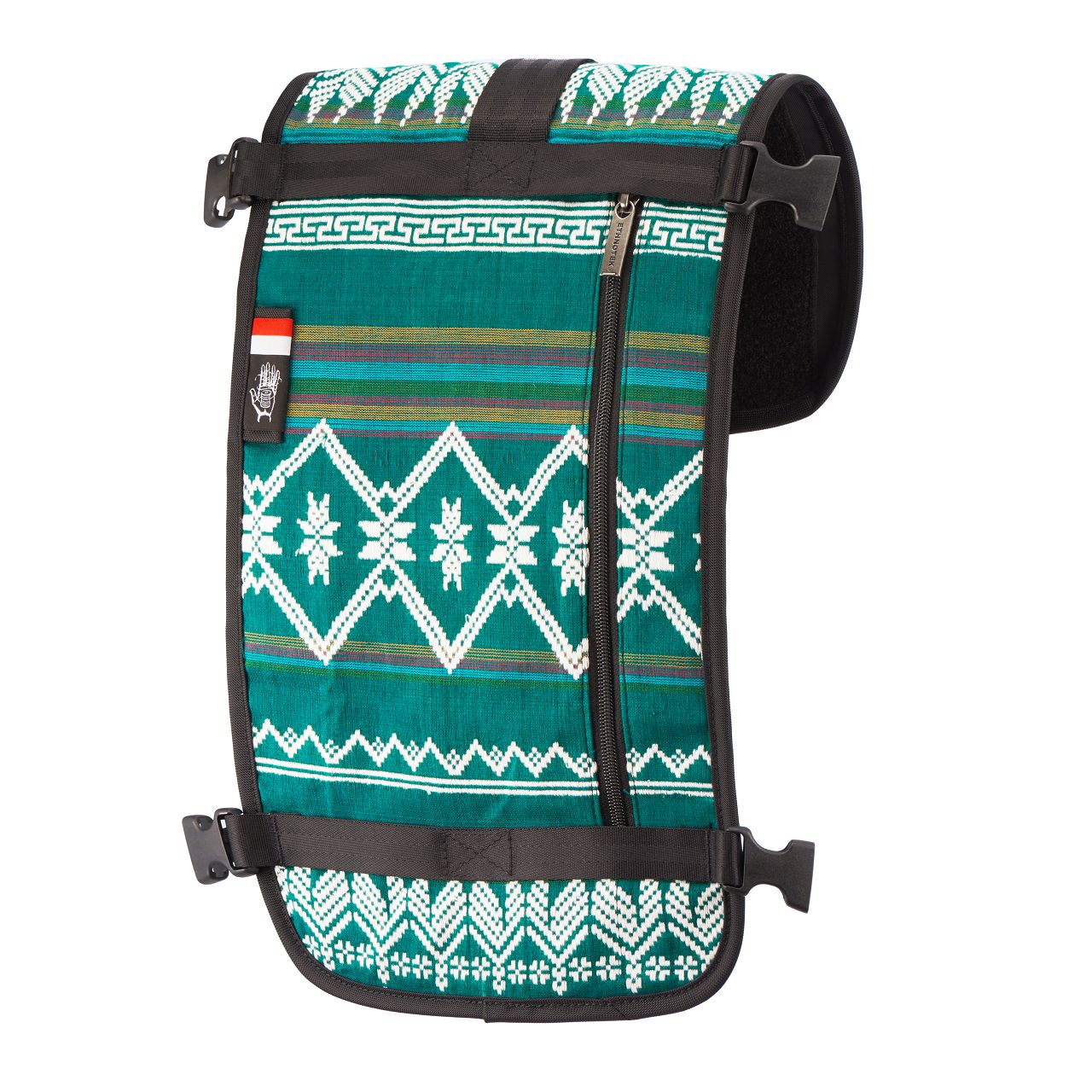
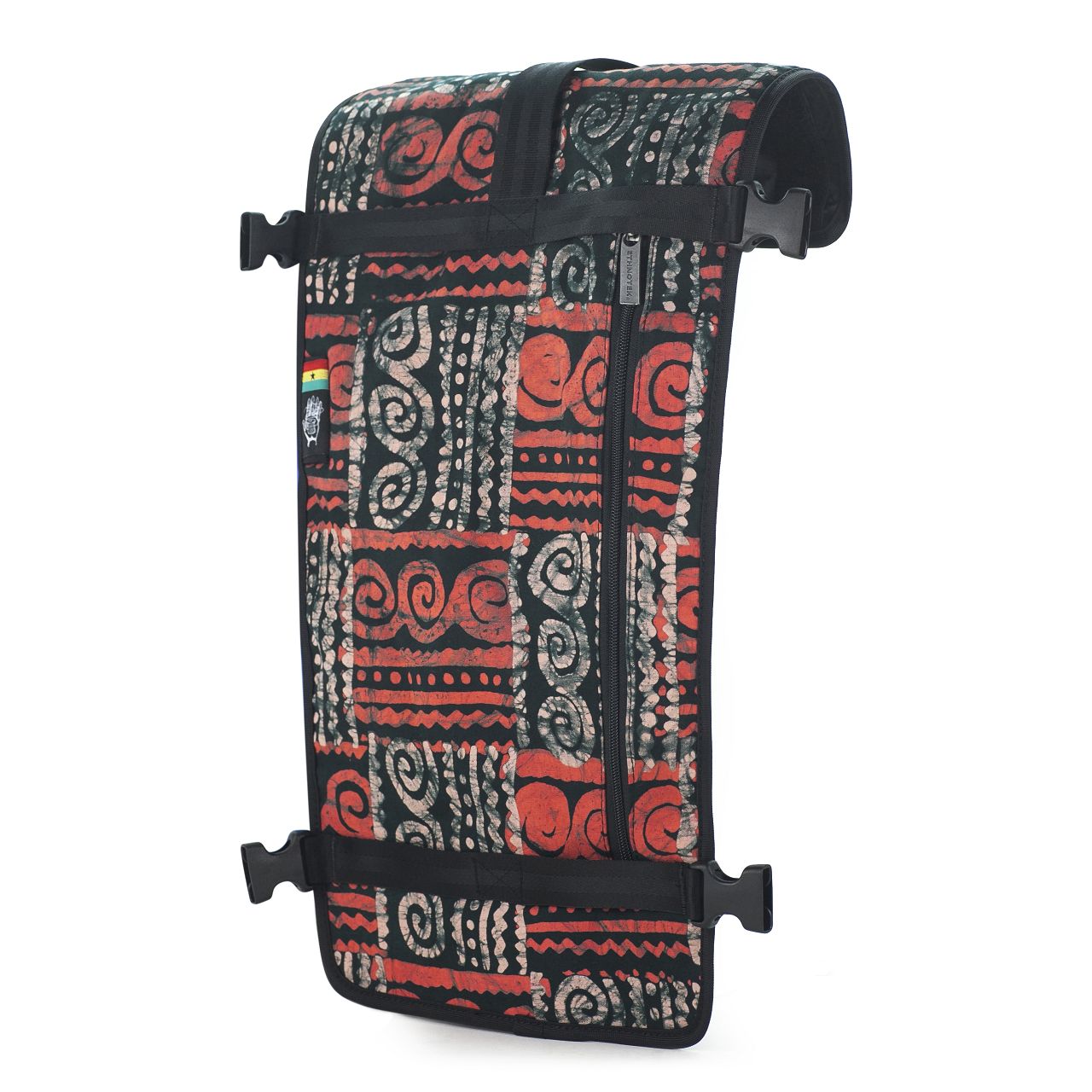
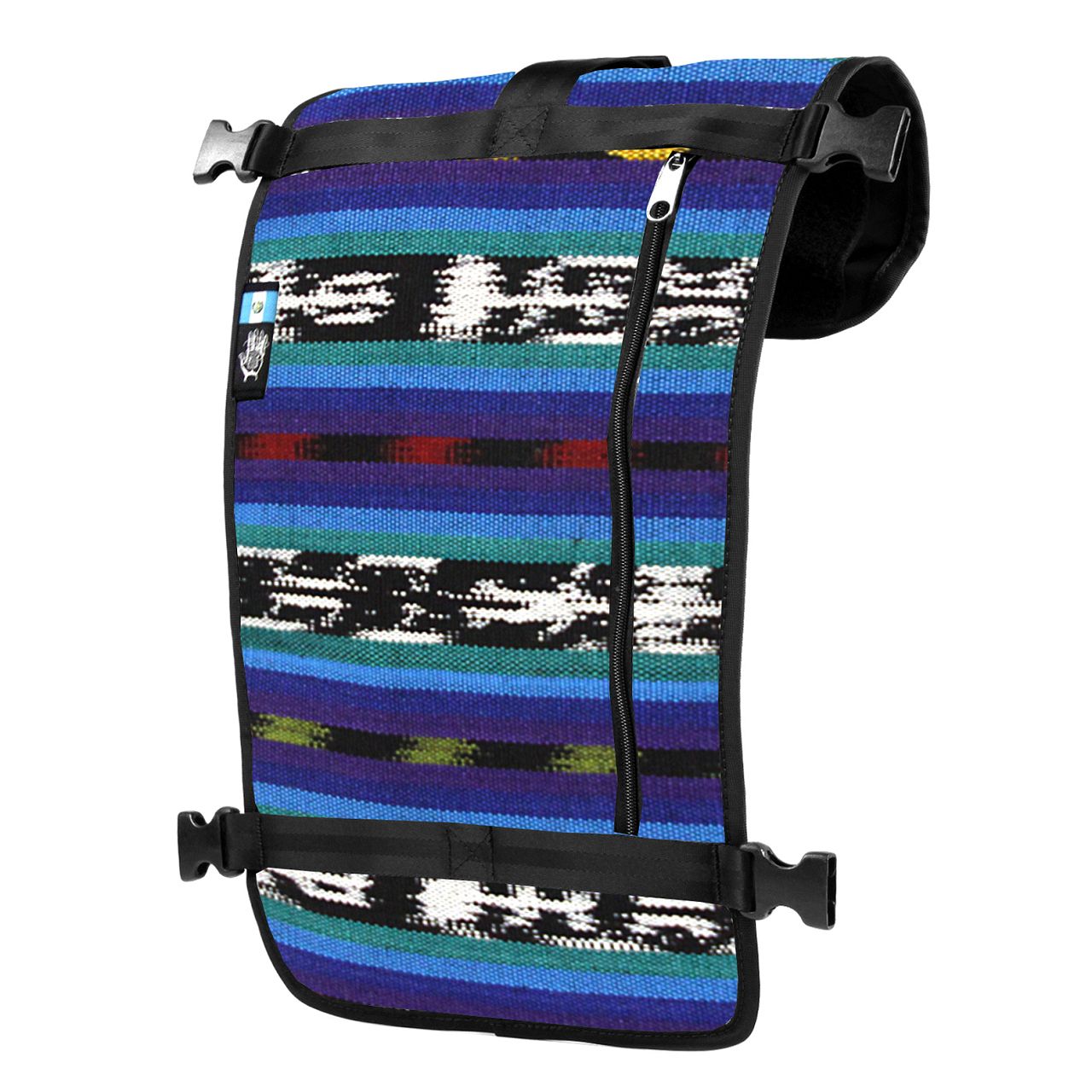
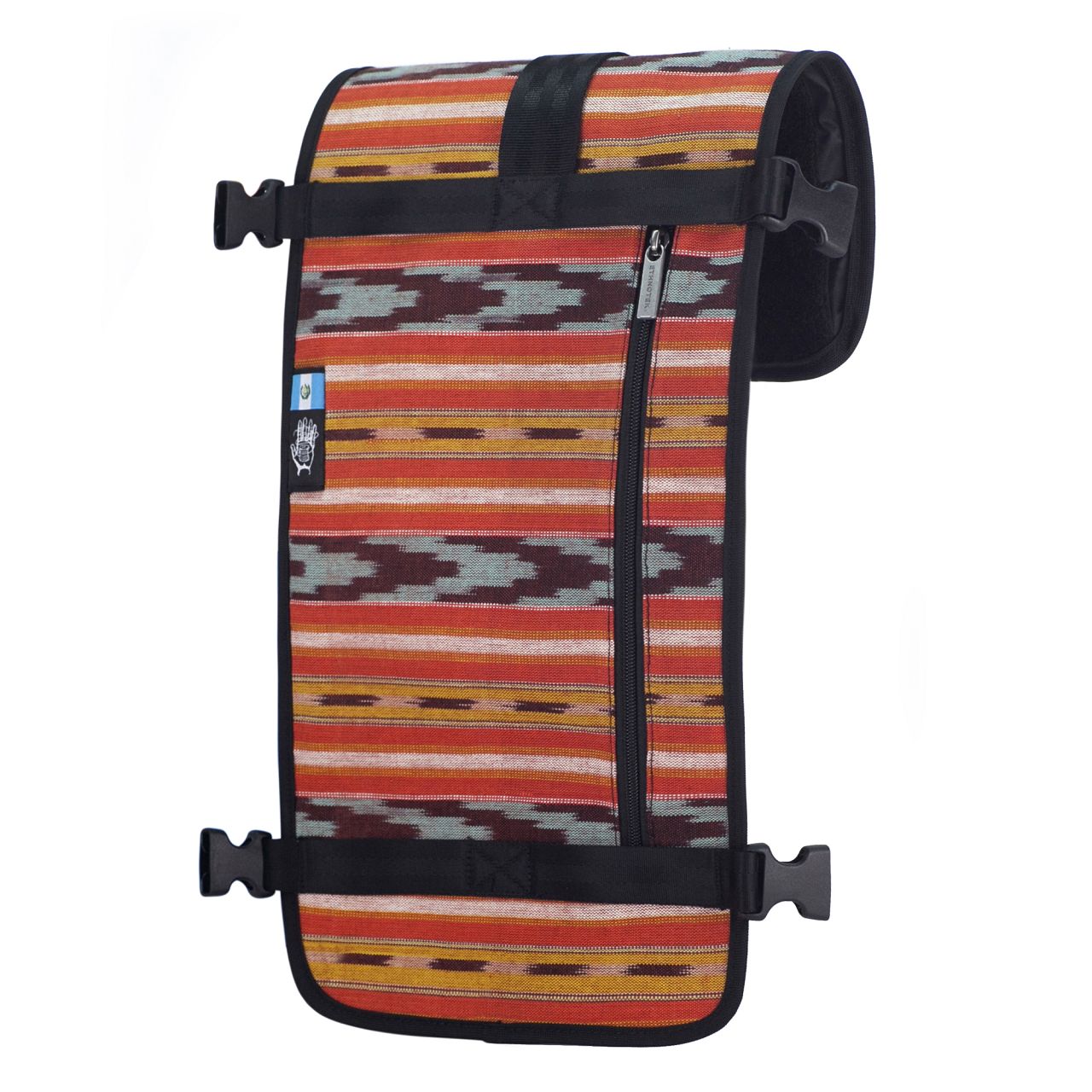
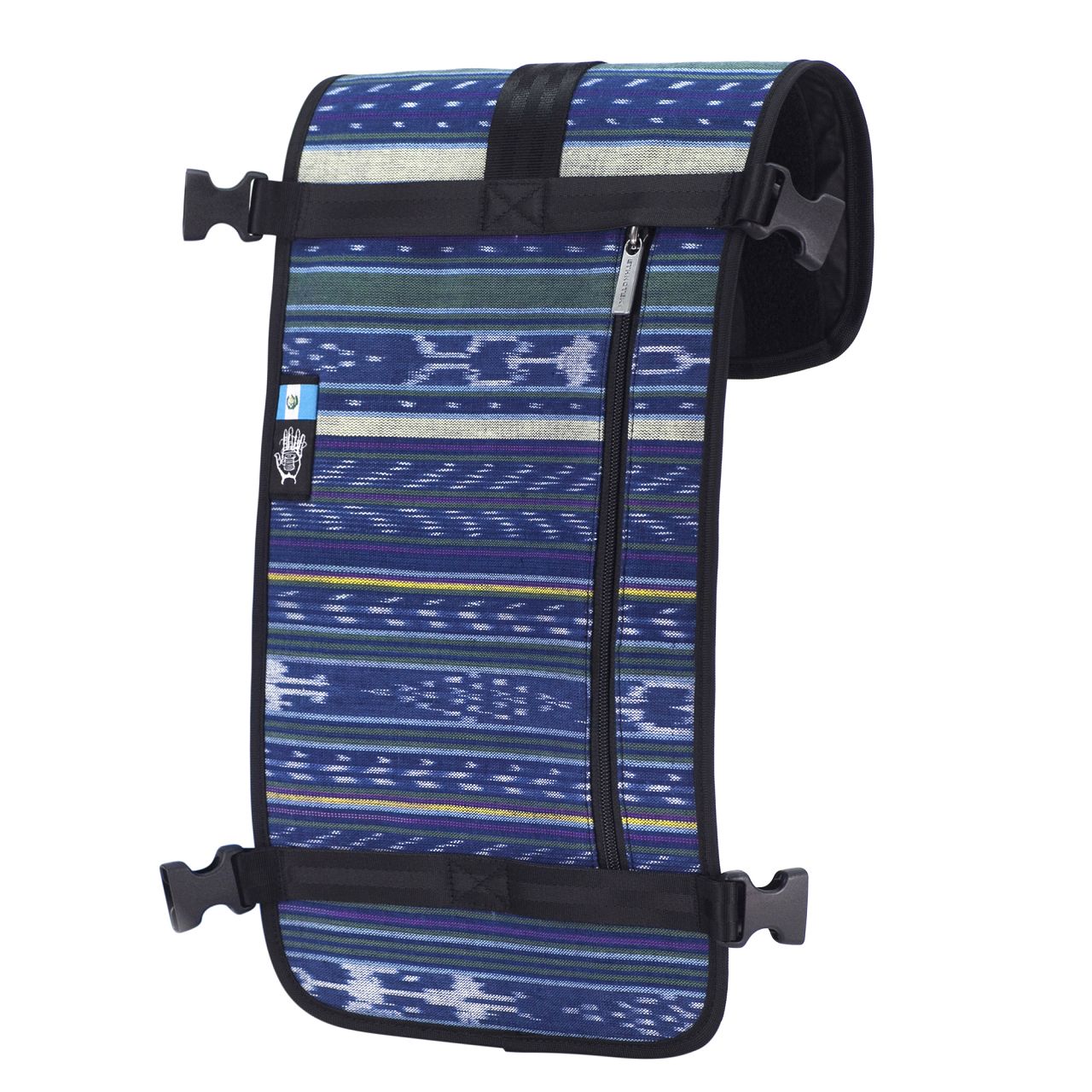
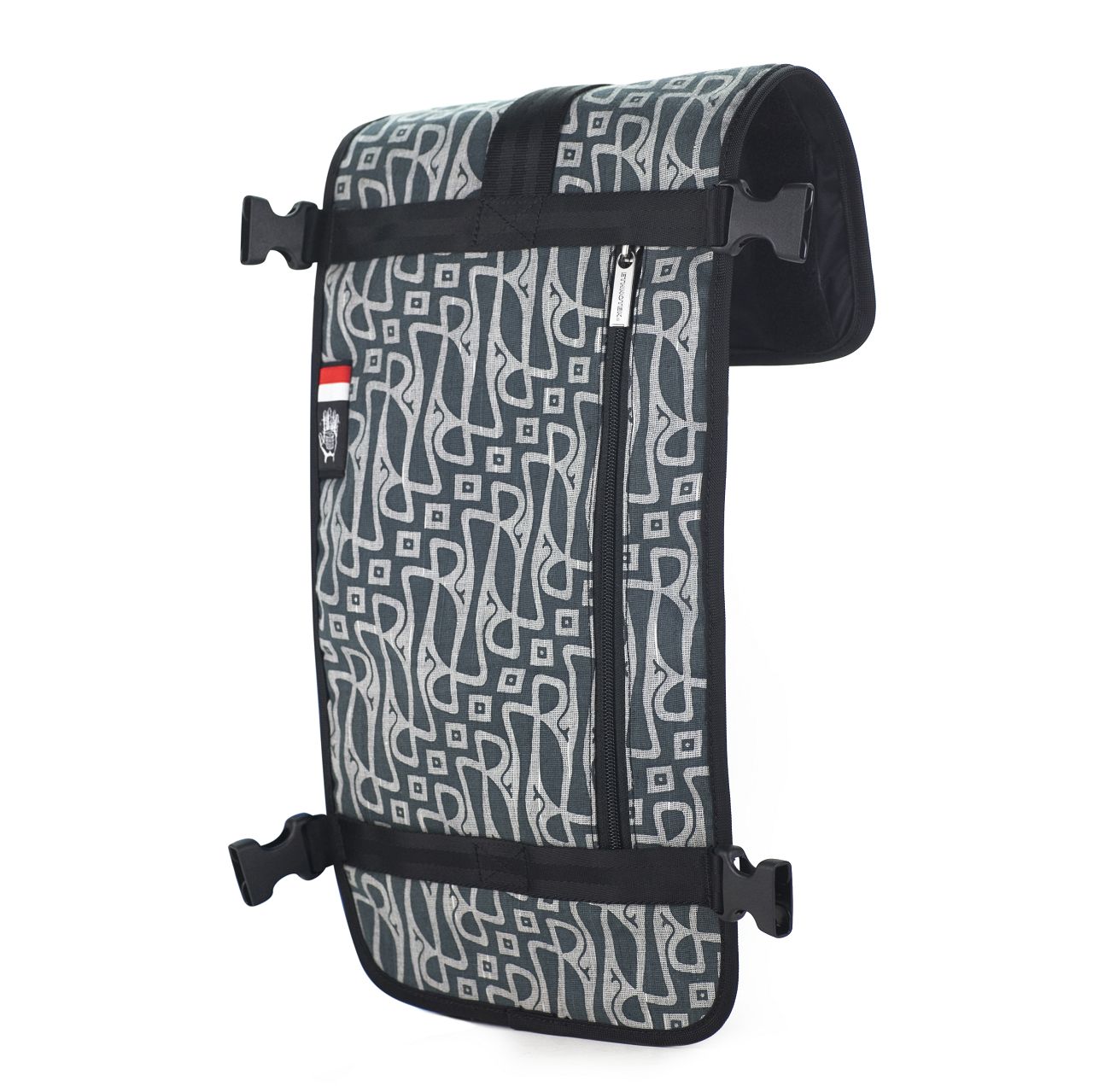
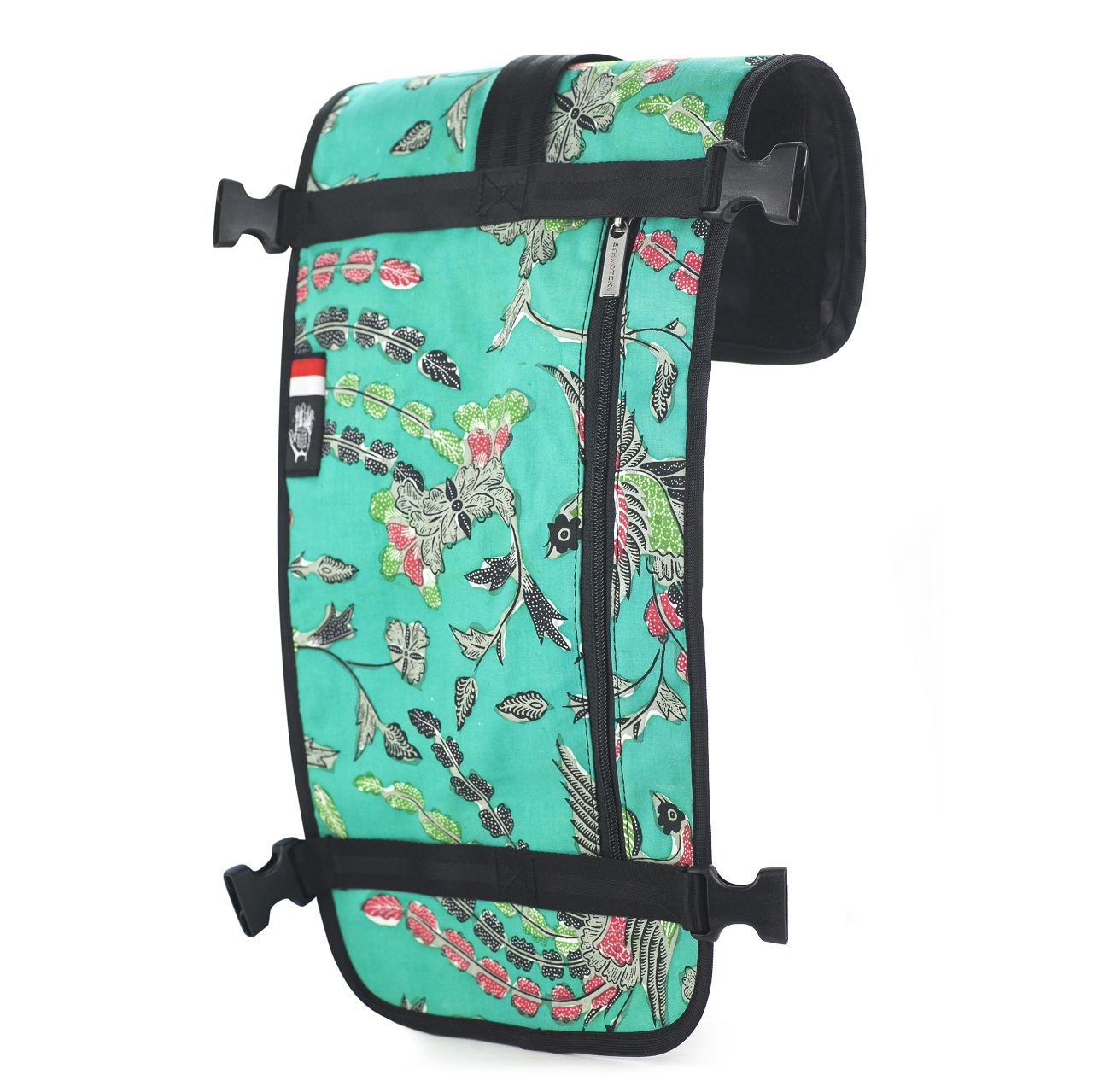
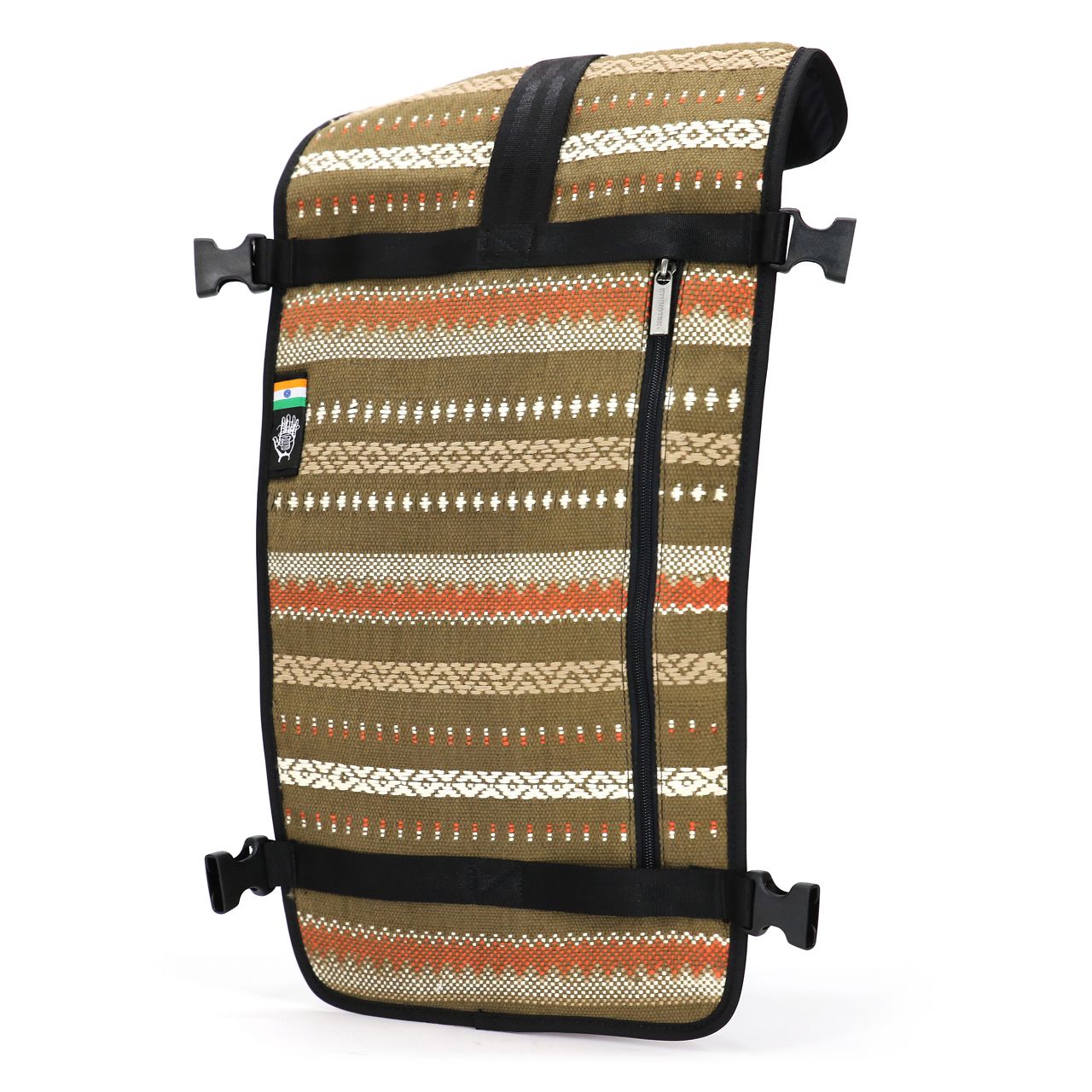
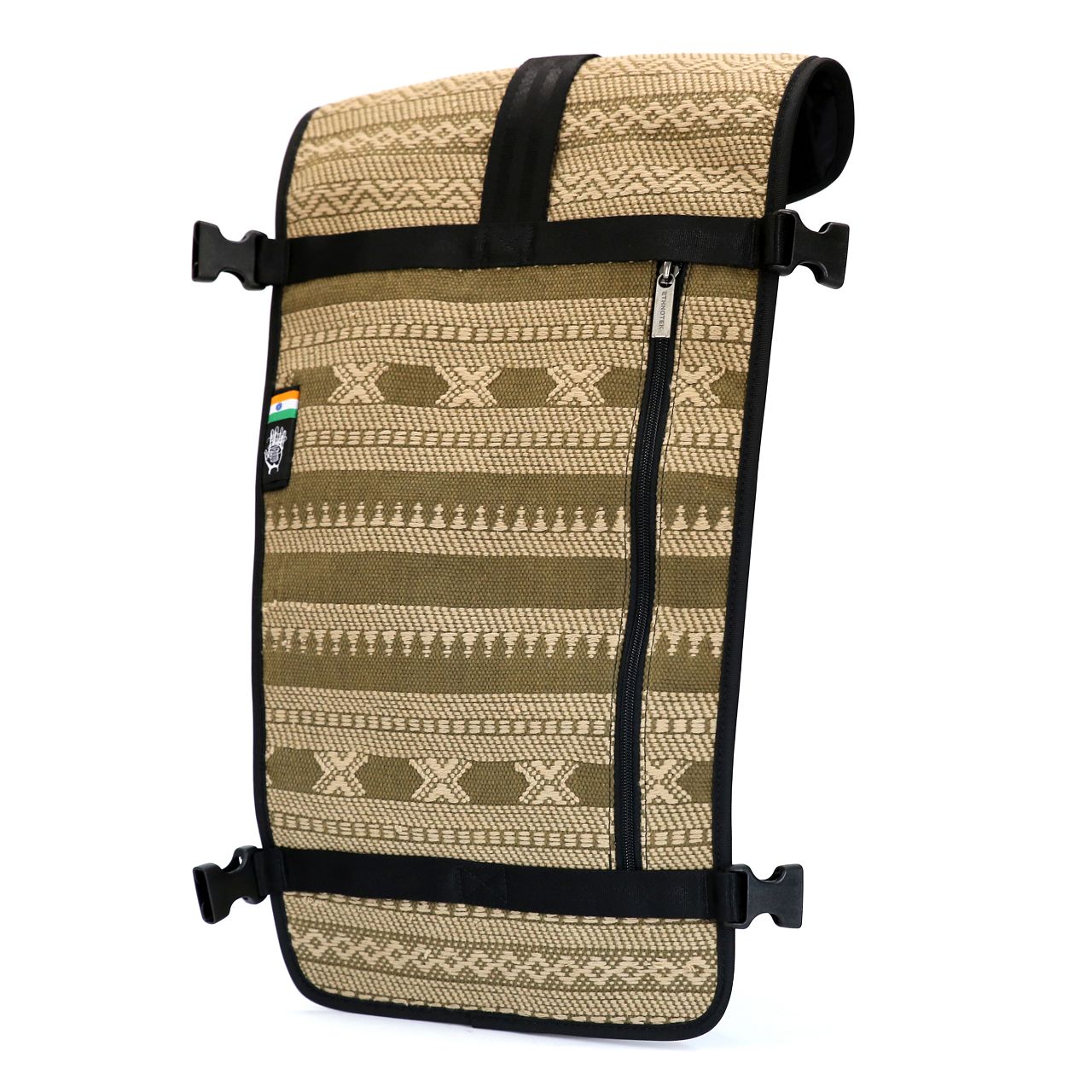
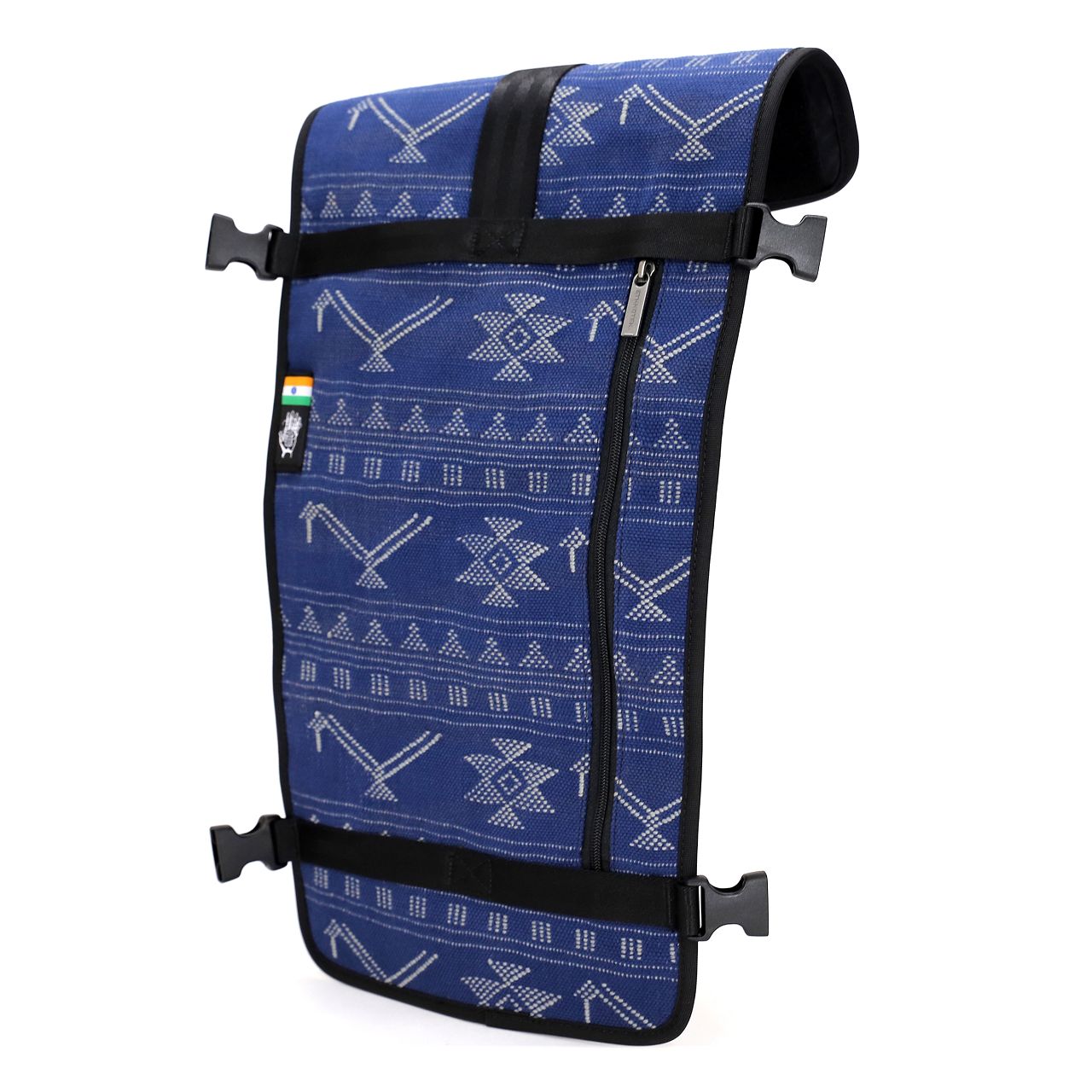
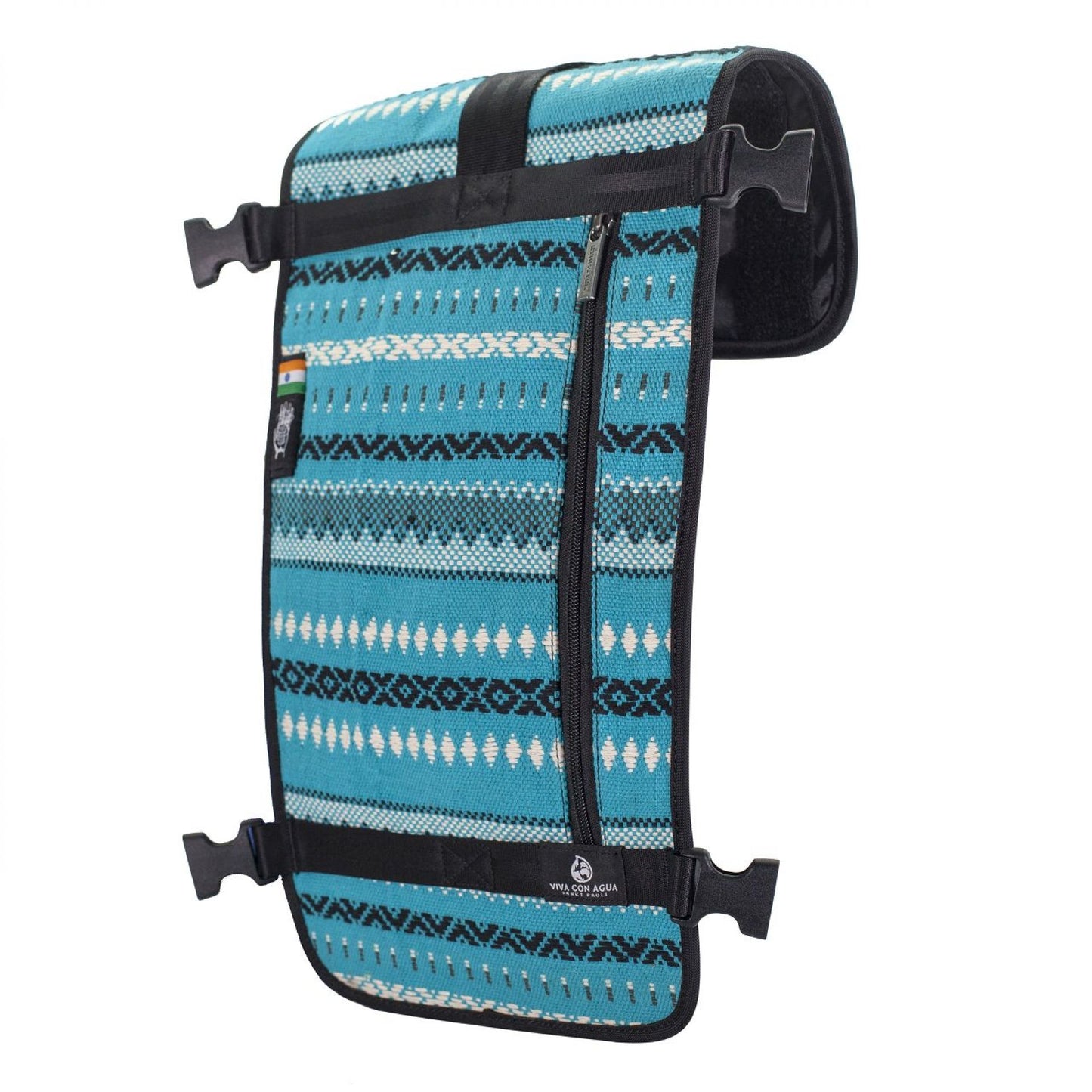
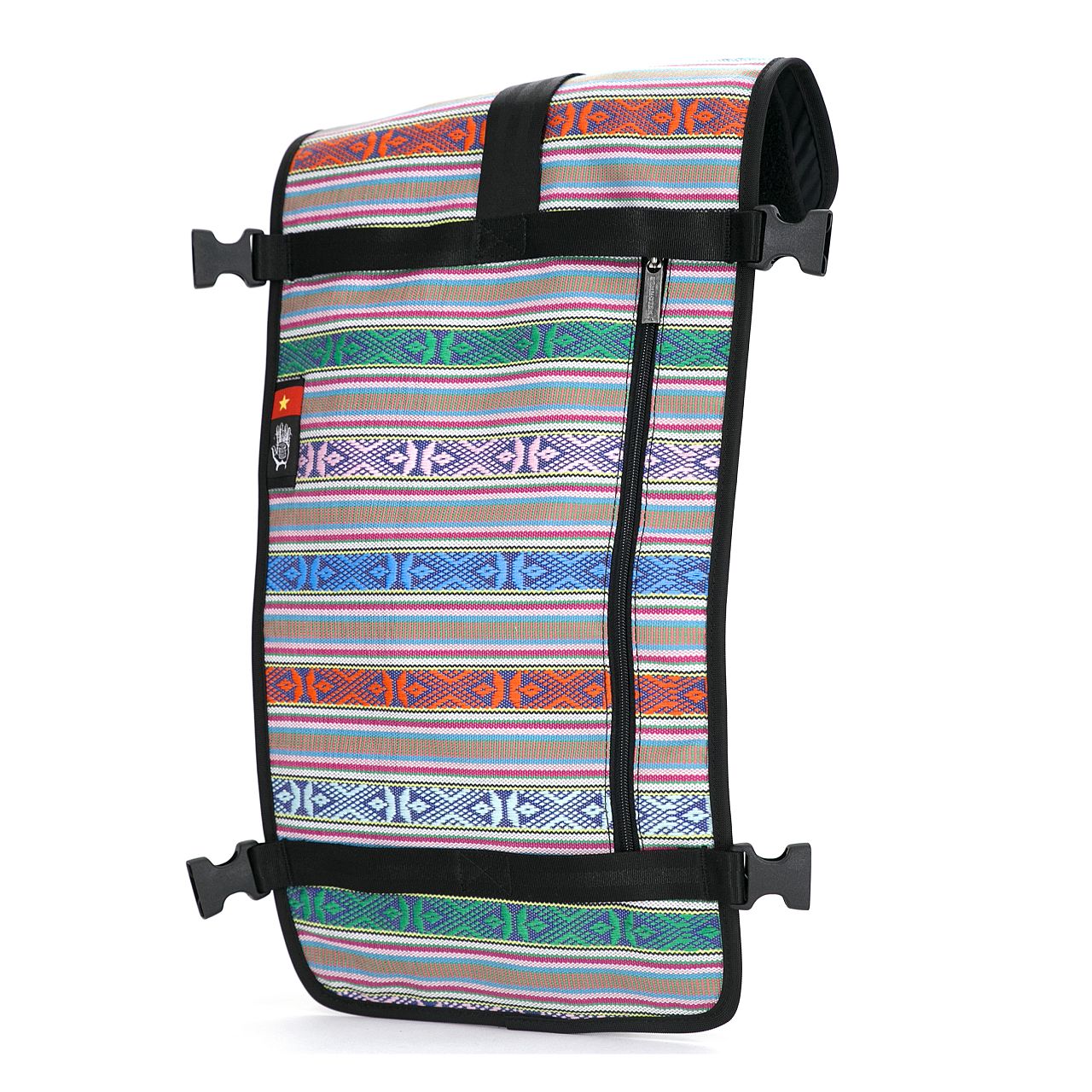
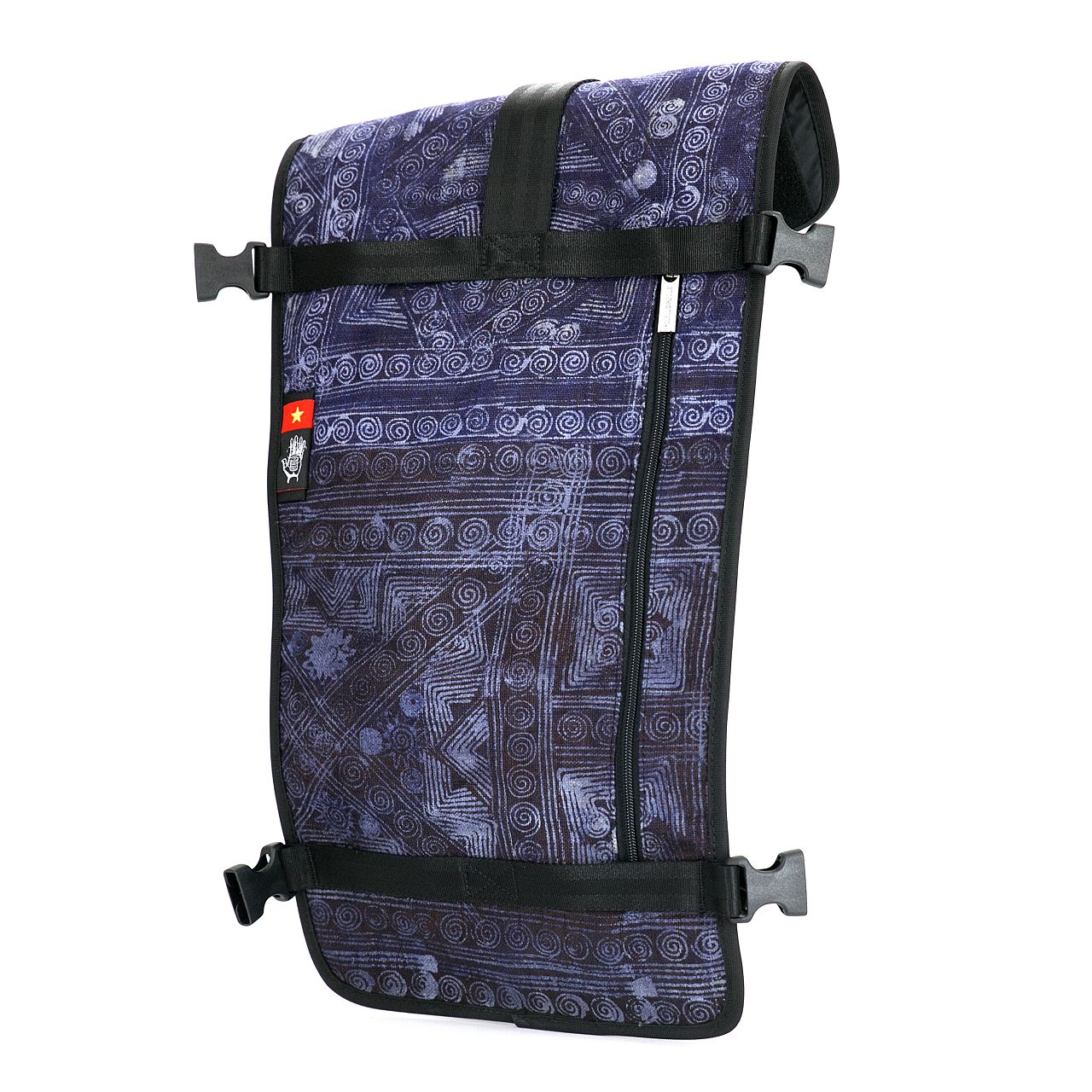



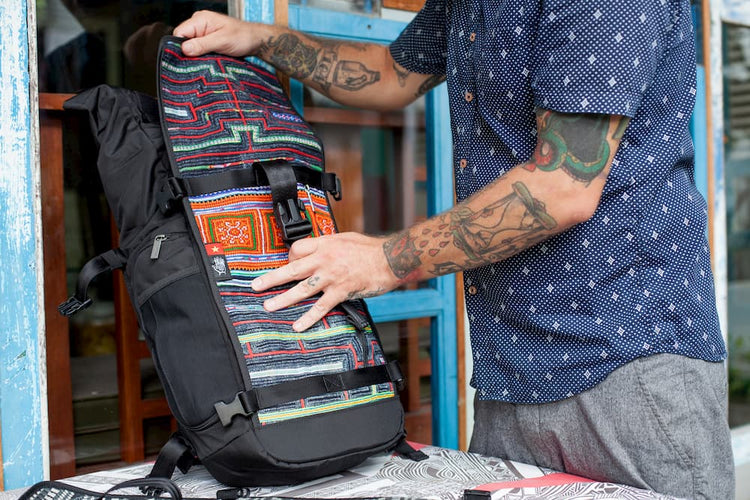
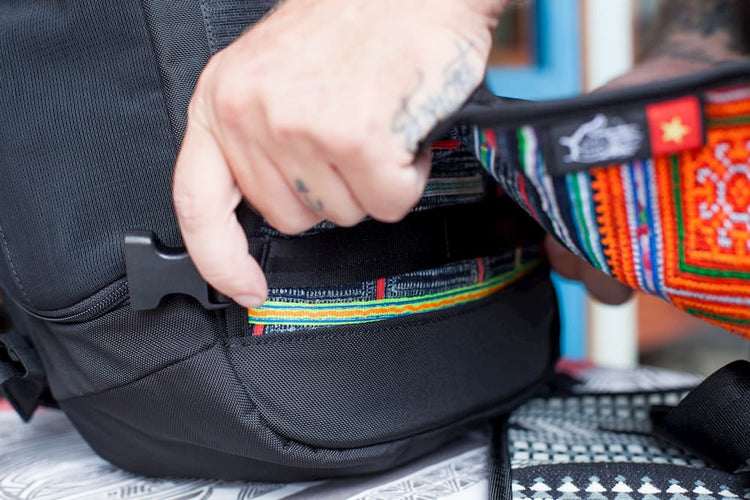
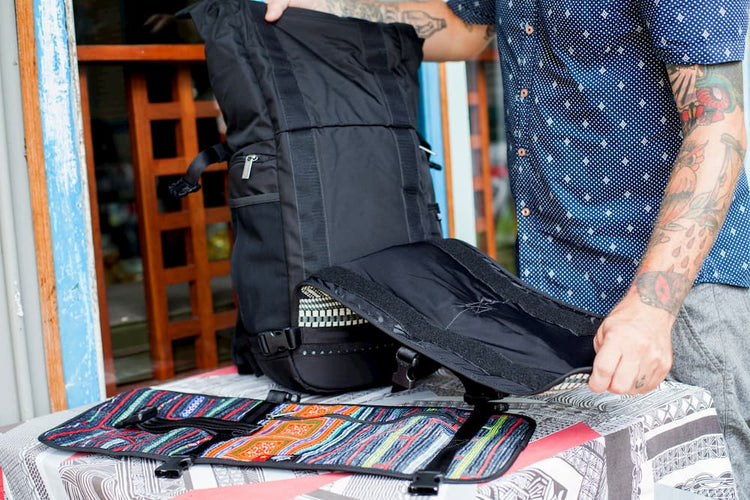
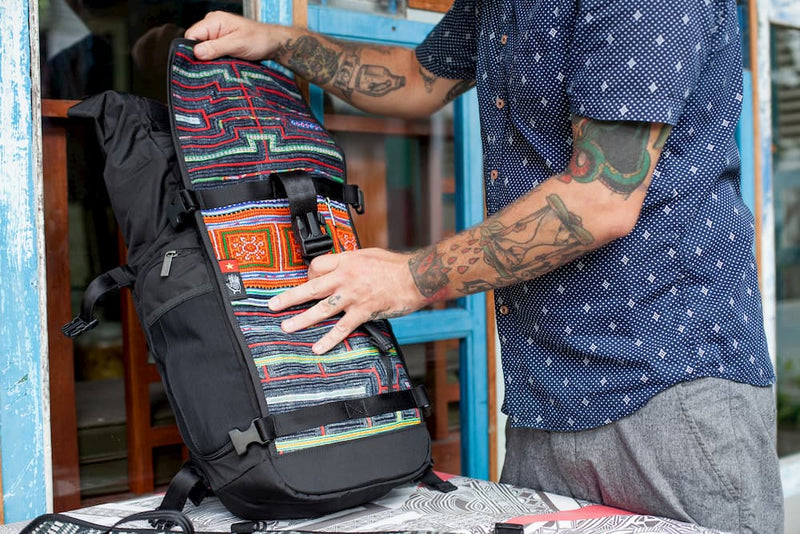
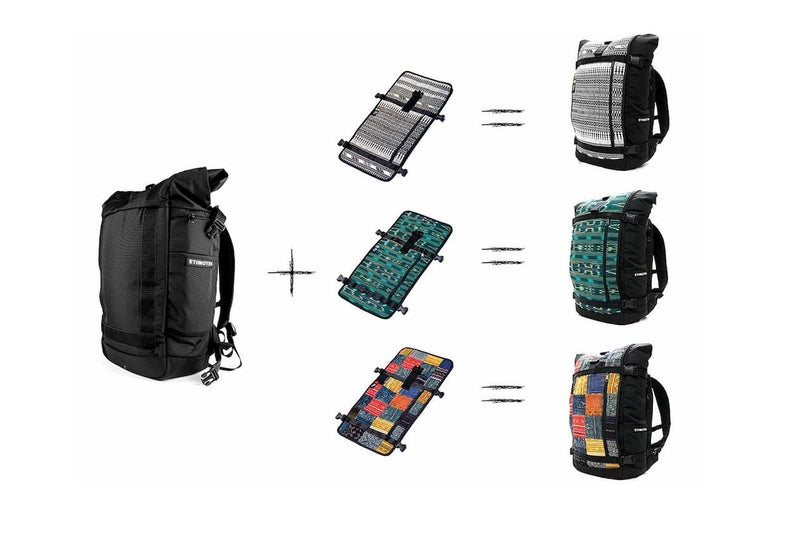
Wir empfinden es als eine große Ehre, dass die Urheber*innen der Motive die Marke Ethnotek gleichermaßen schätzen und wir ihre traditionellen handgefertigten Textilien in funktionalen Taschen und Rucksäcken verarbeiten dürfen. Unser gemeinsamer Wunsch ist es, die kulturelle Diversität zu feiern und dem lokalen Handwerk eine globale Bühne zu geben.
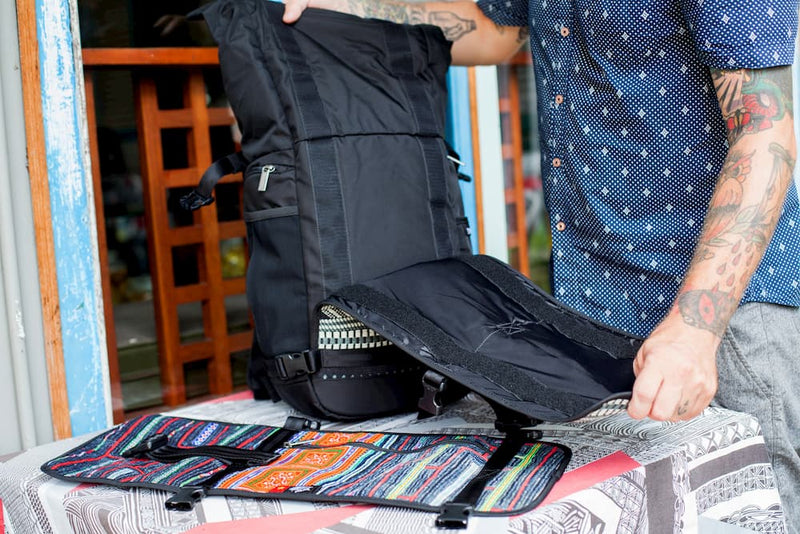
Ethnotek Produkte werden mit individuellen Herstellungstechniken und Materialien handgefertigt. Unsere Rucksäcke und Taschen sind also so einzigartig wie der Träger selbst. Eine 100% genaue Abbildung jedes Unikats ist in unserem Webshop daher nicht so einfach möglich. Besonders vielfältige und schöne Variationen zeigen zum Beispiel die Muster Vietnam 5 und 6.
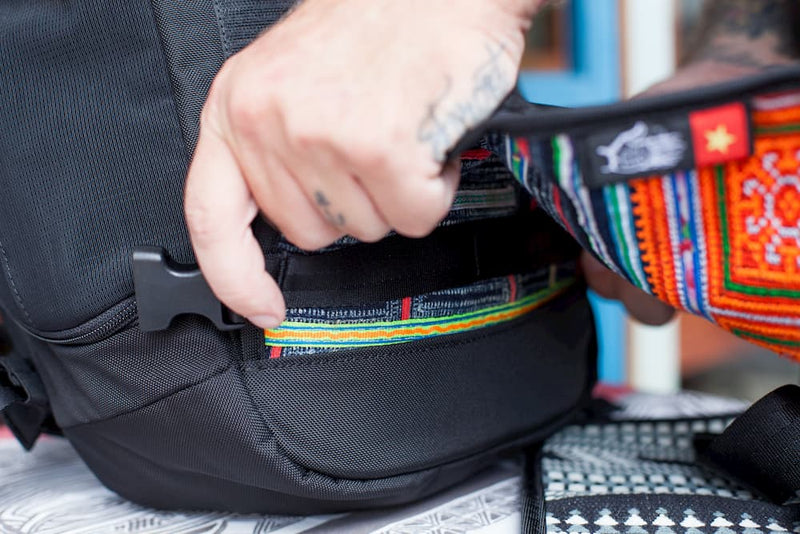
- Kann als Sitzmatte verwendet werden




















































